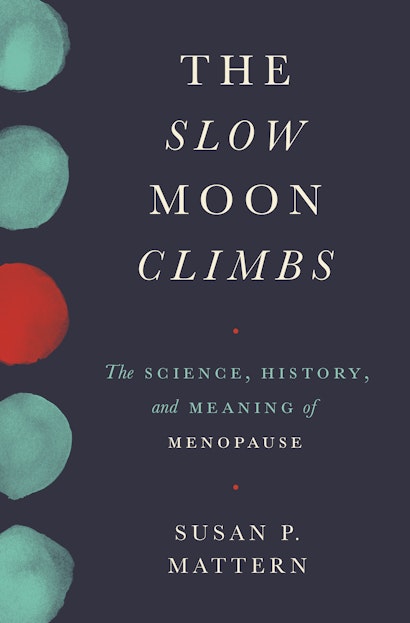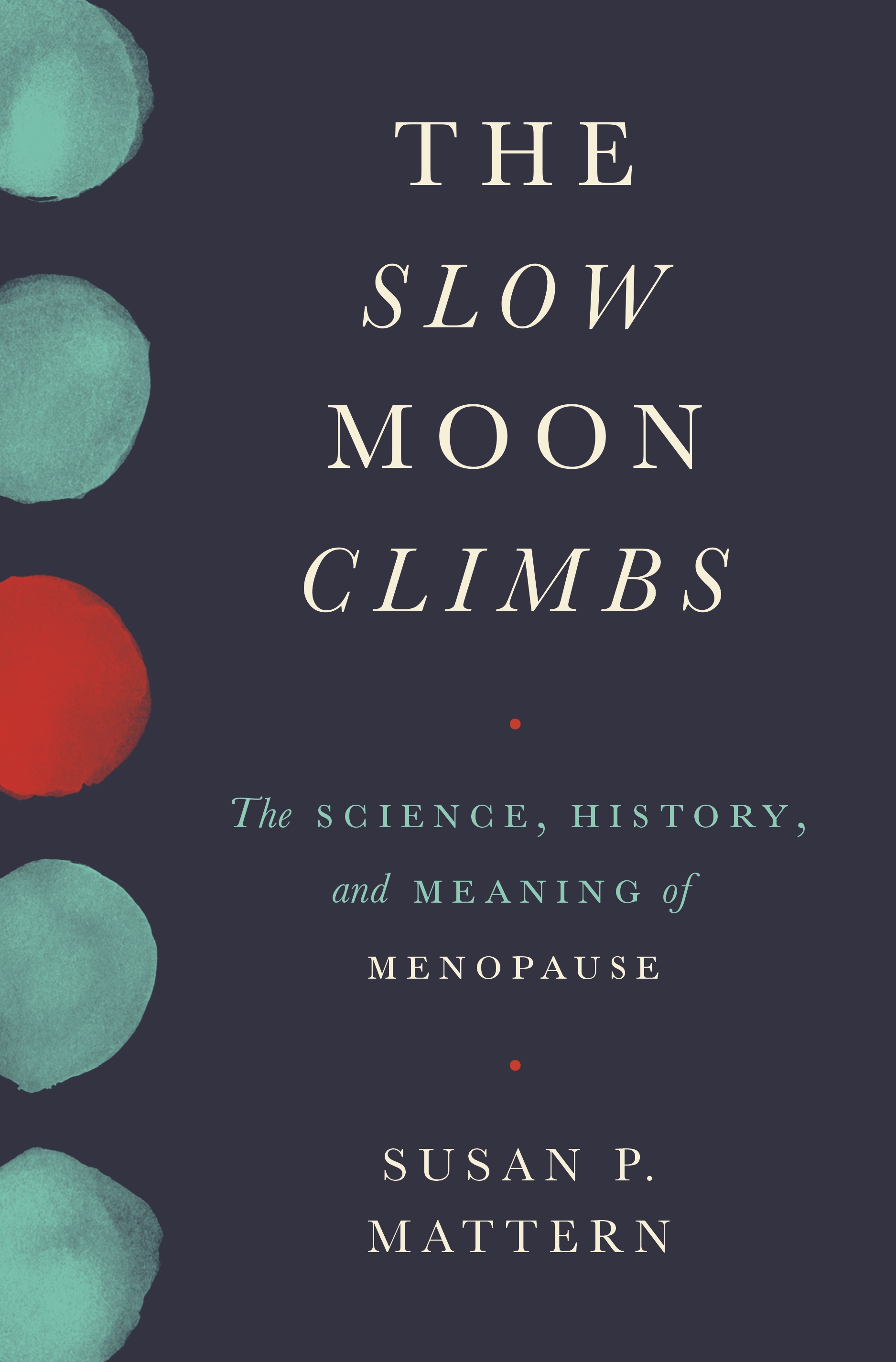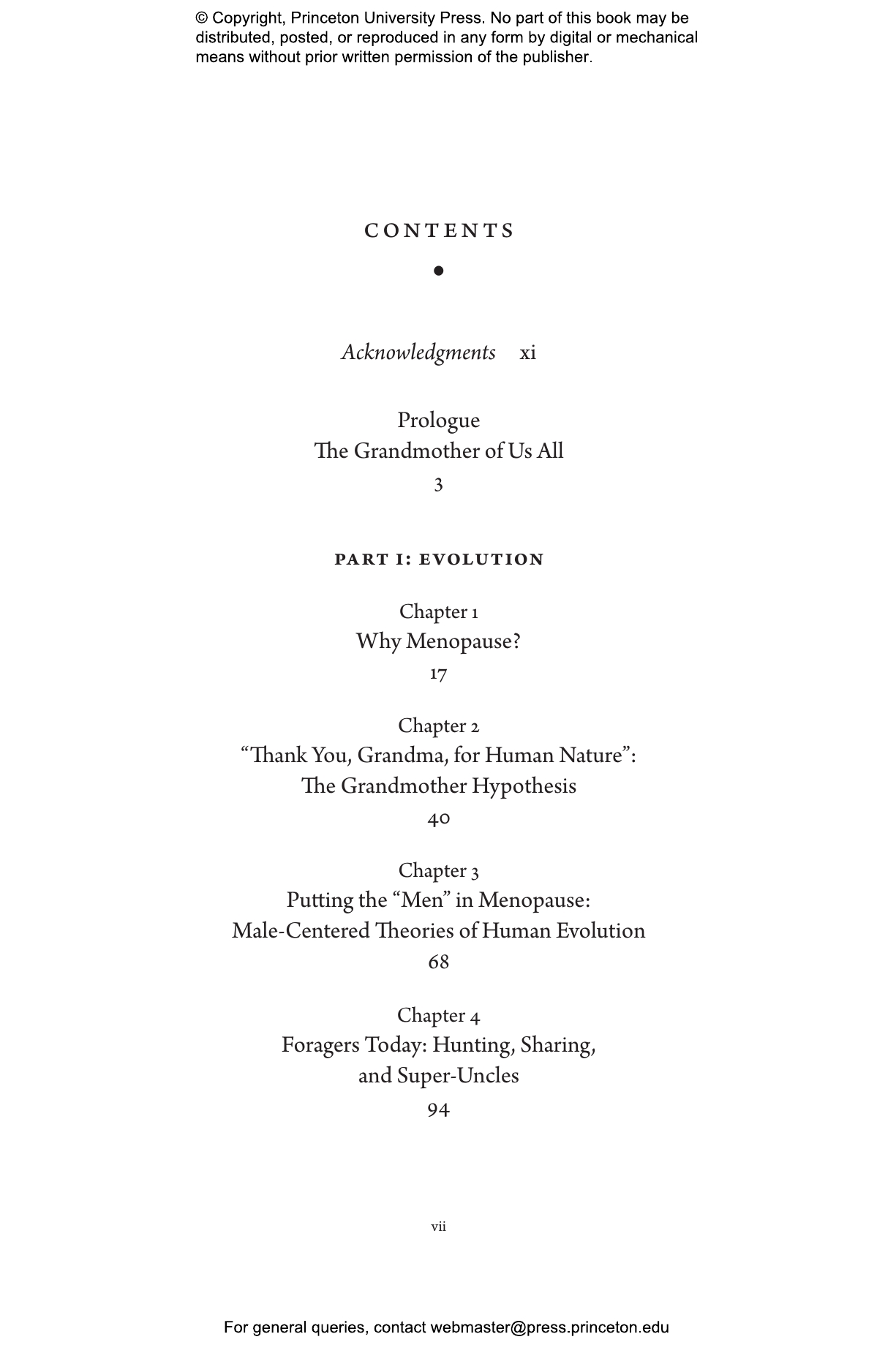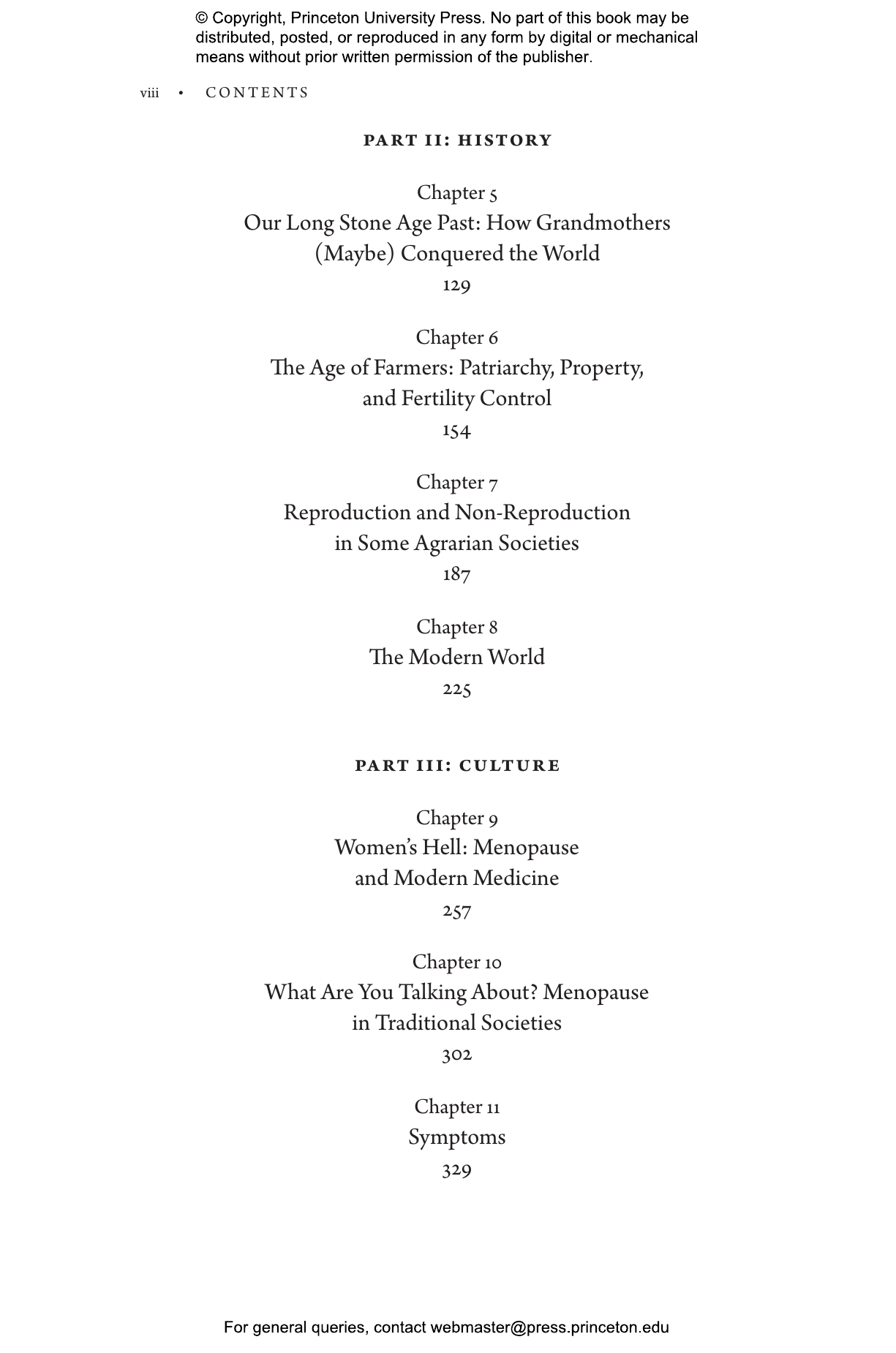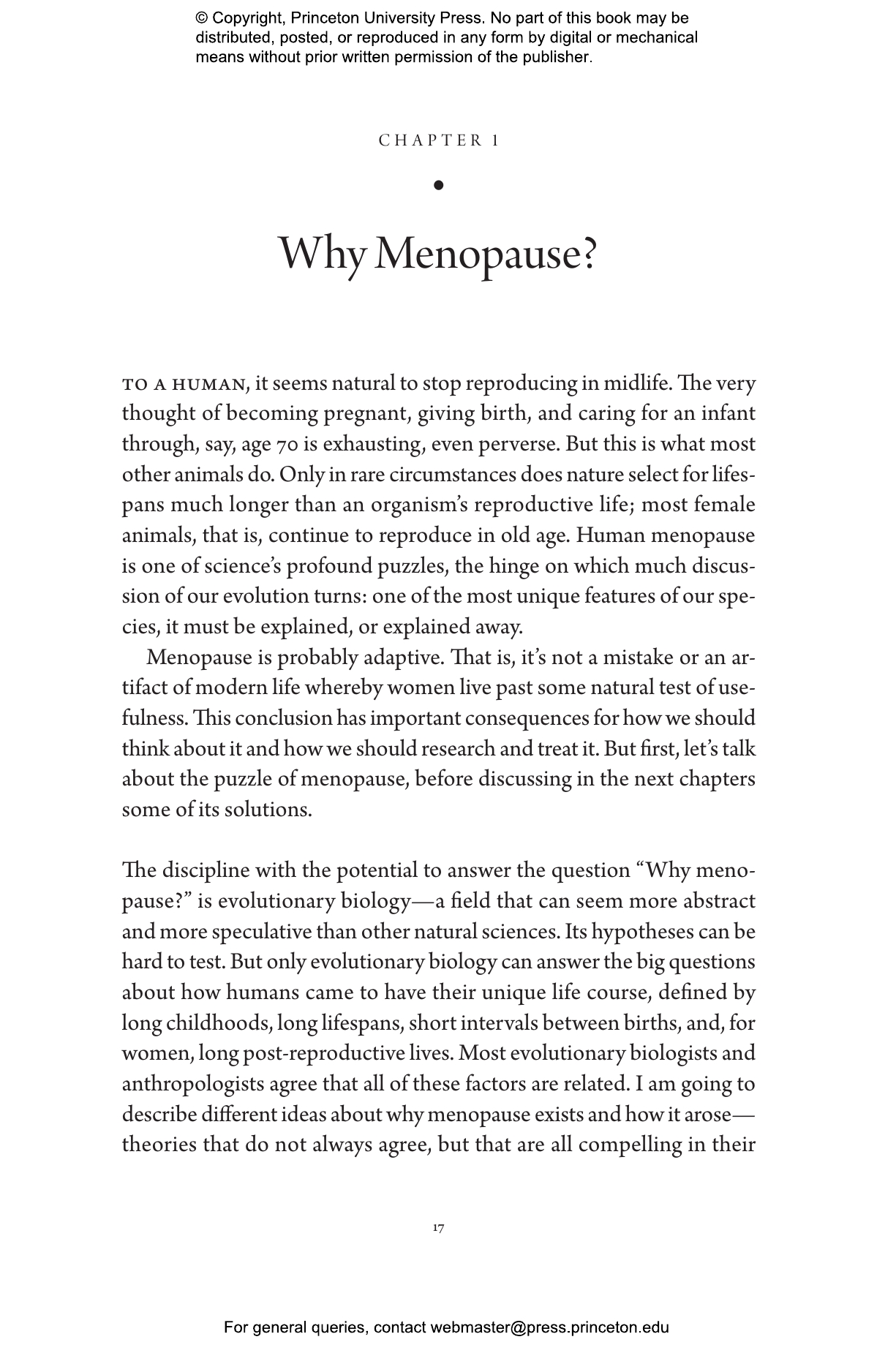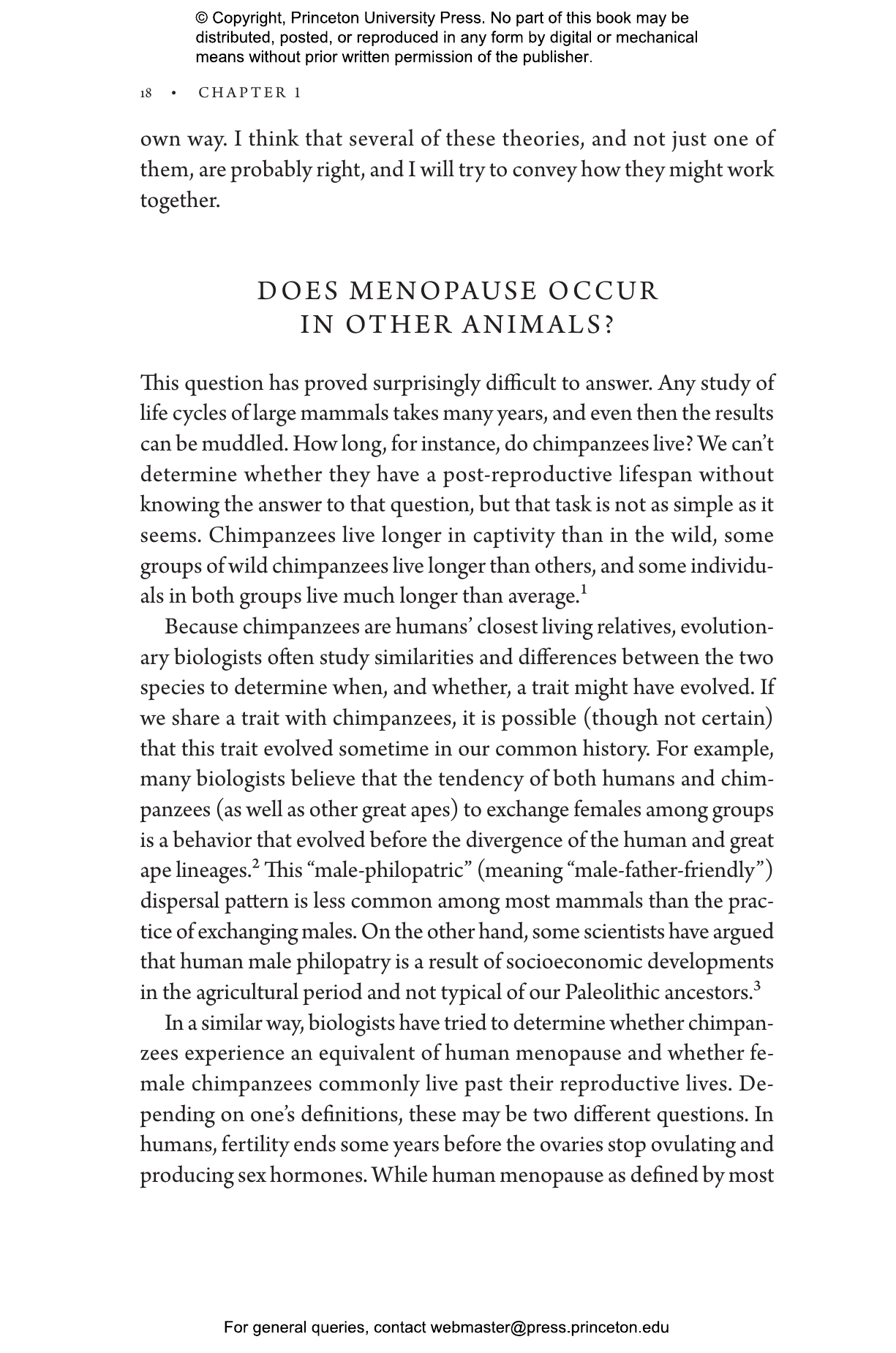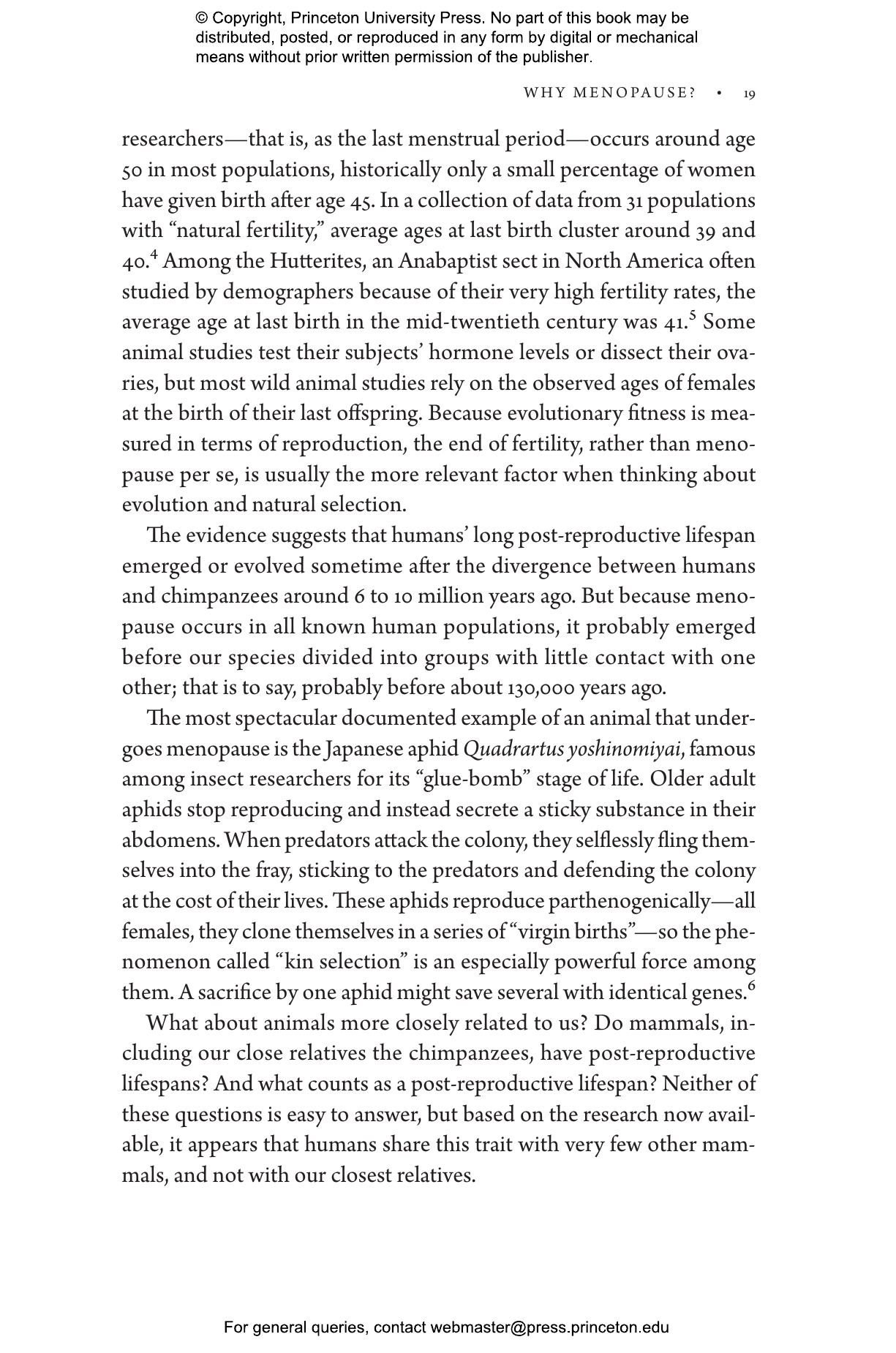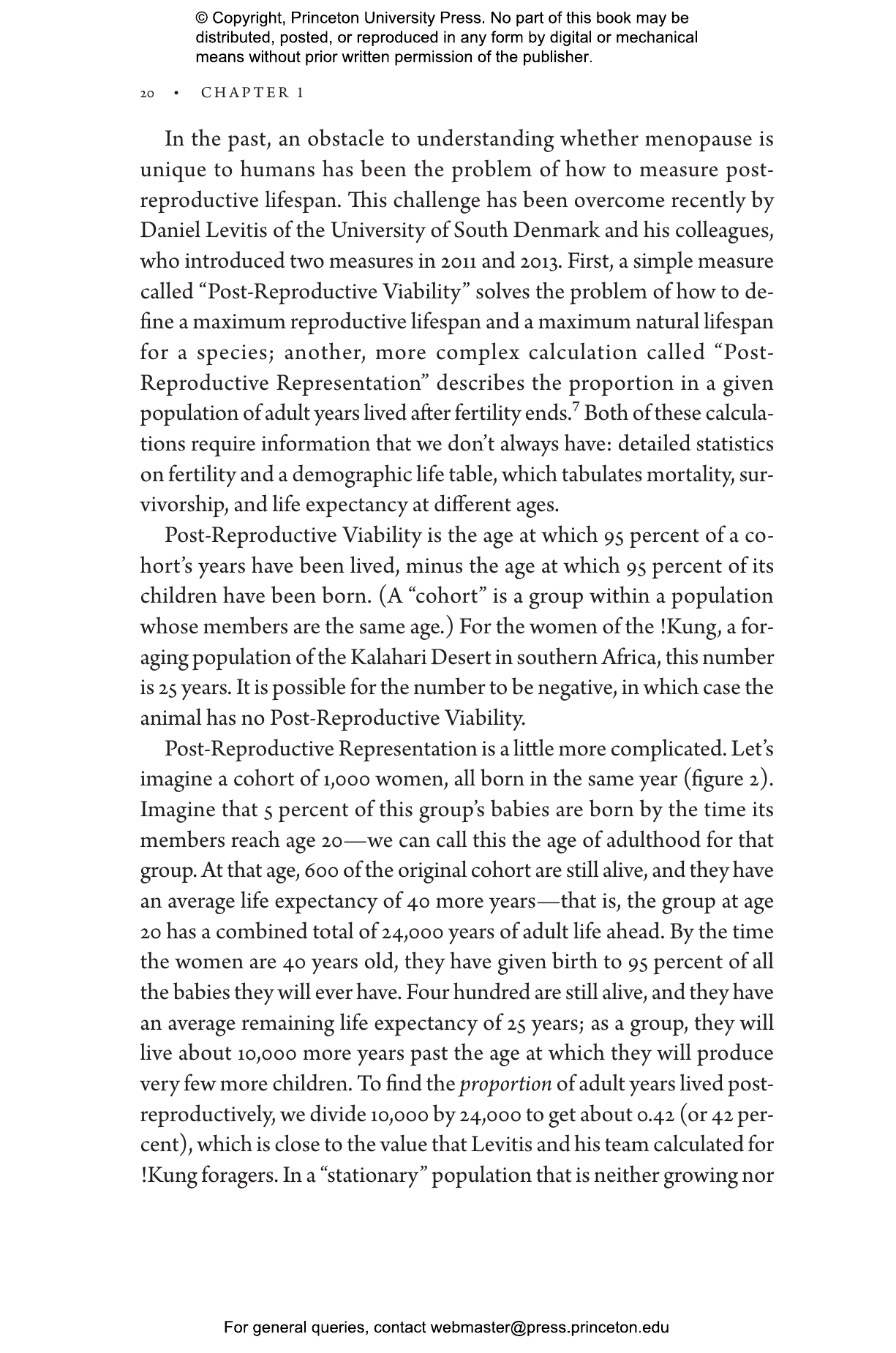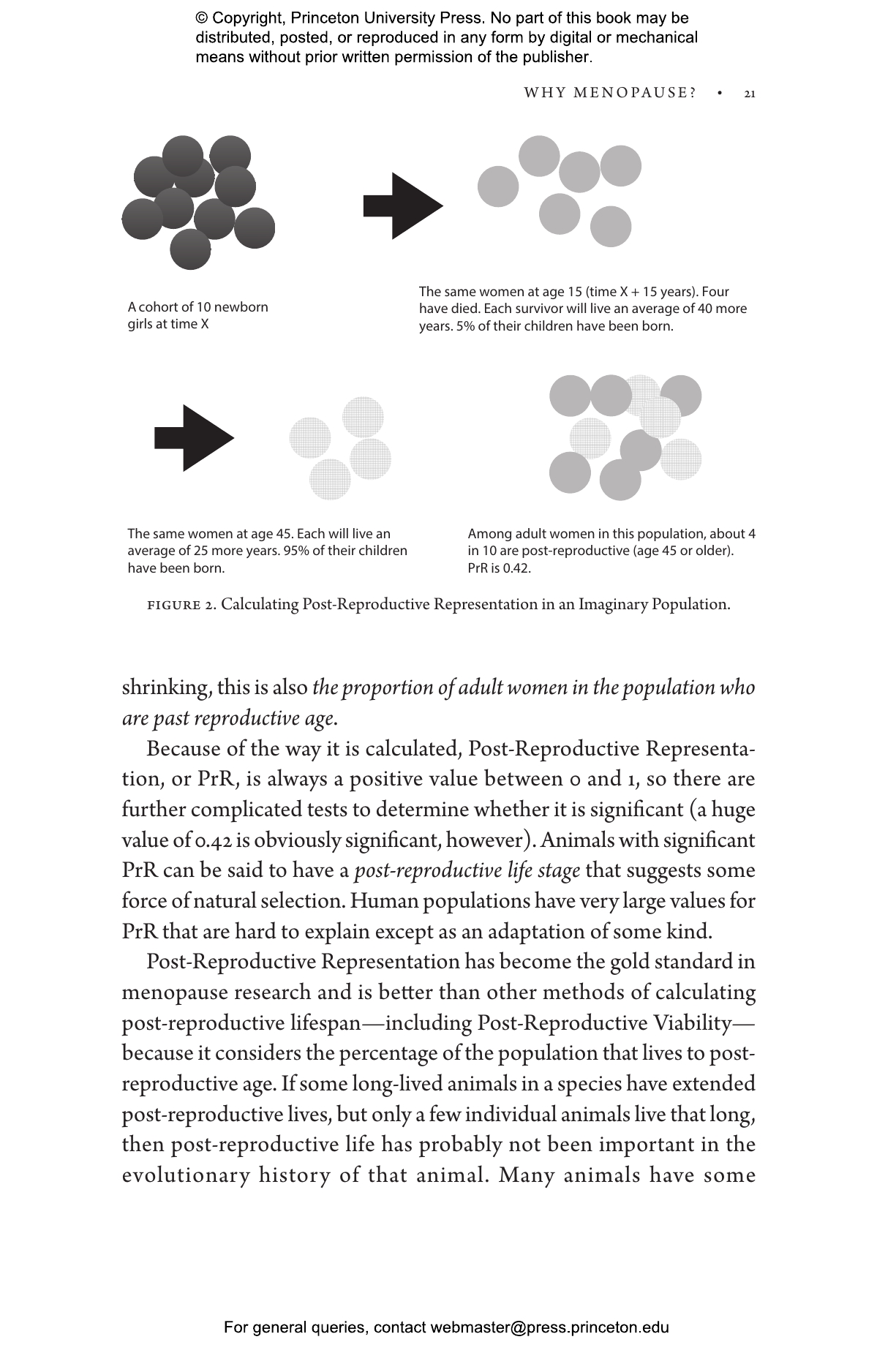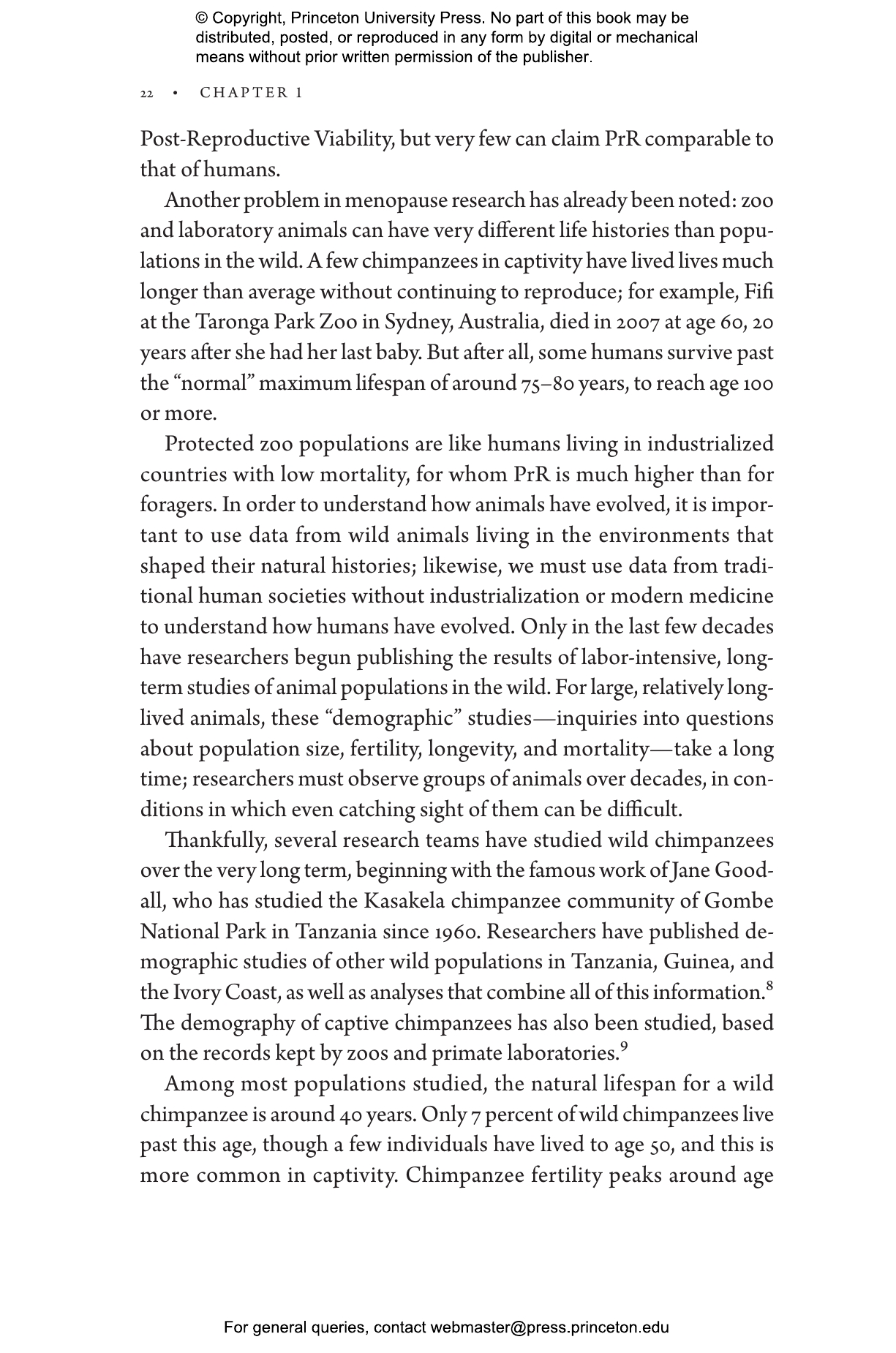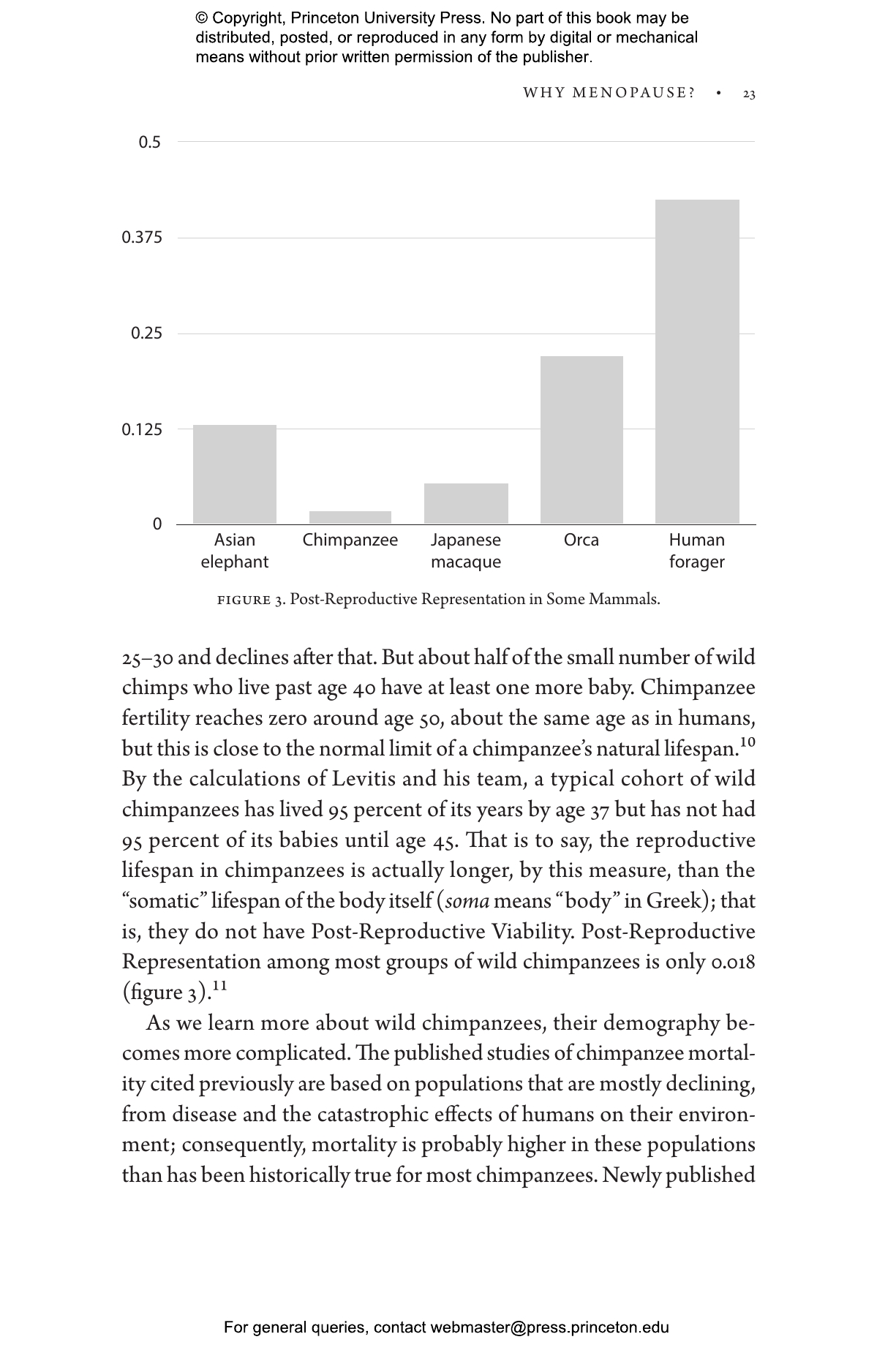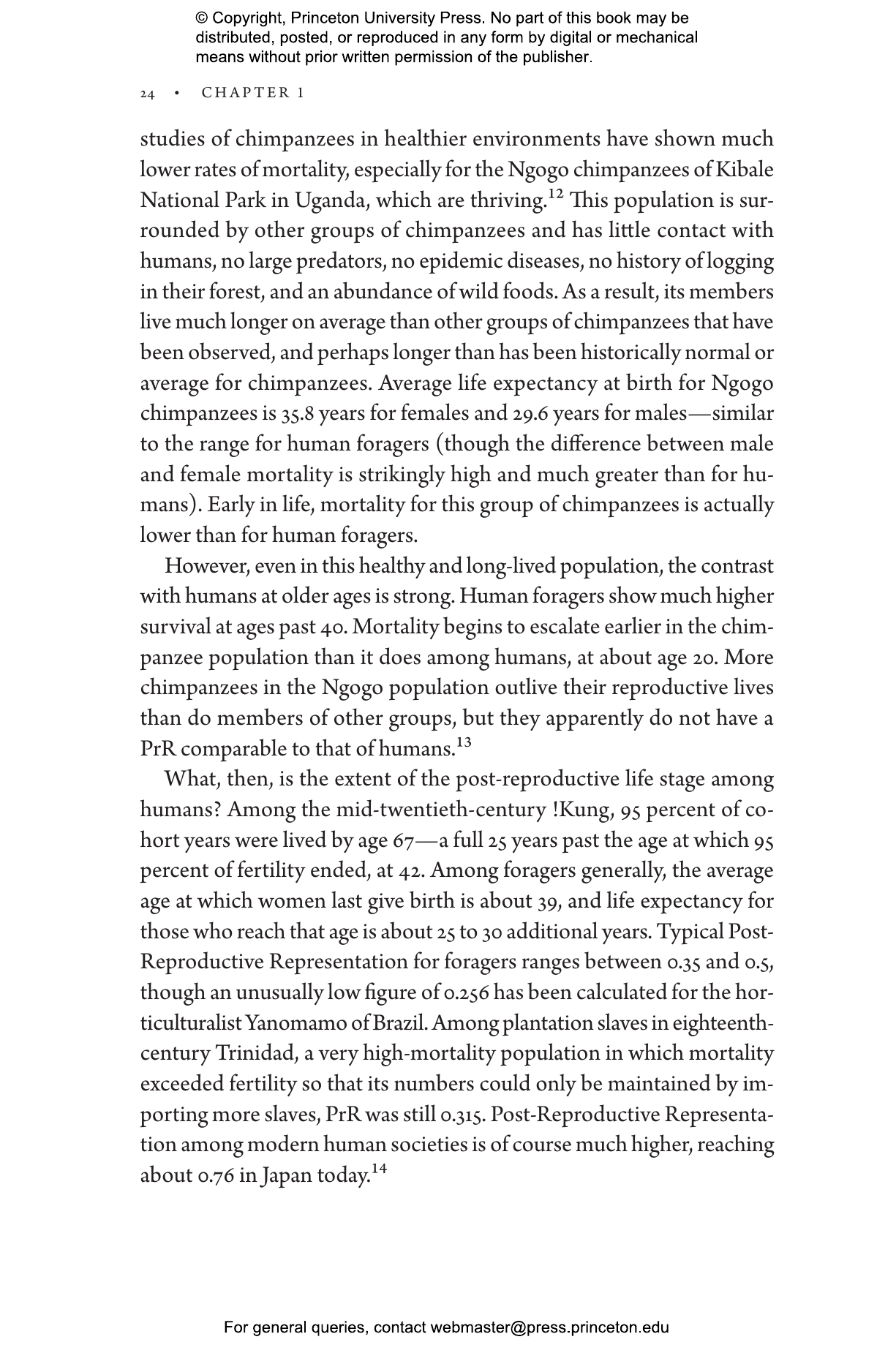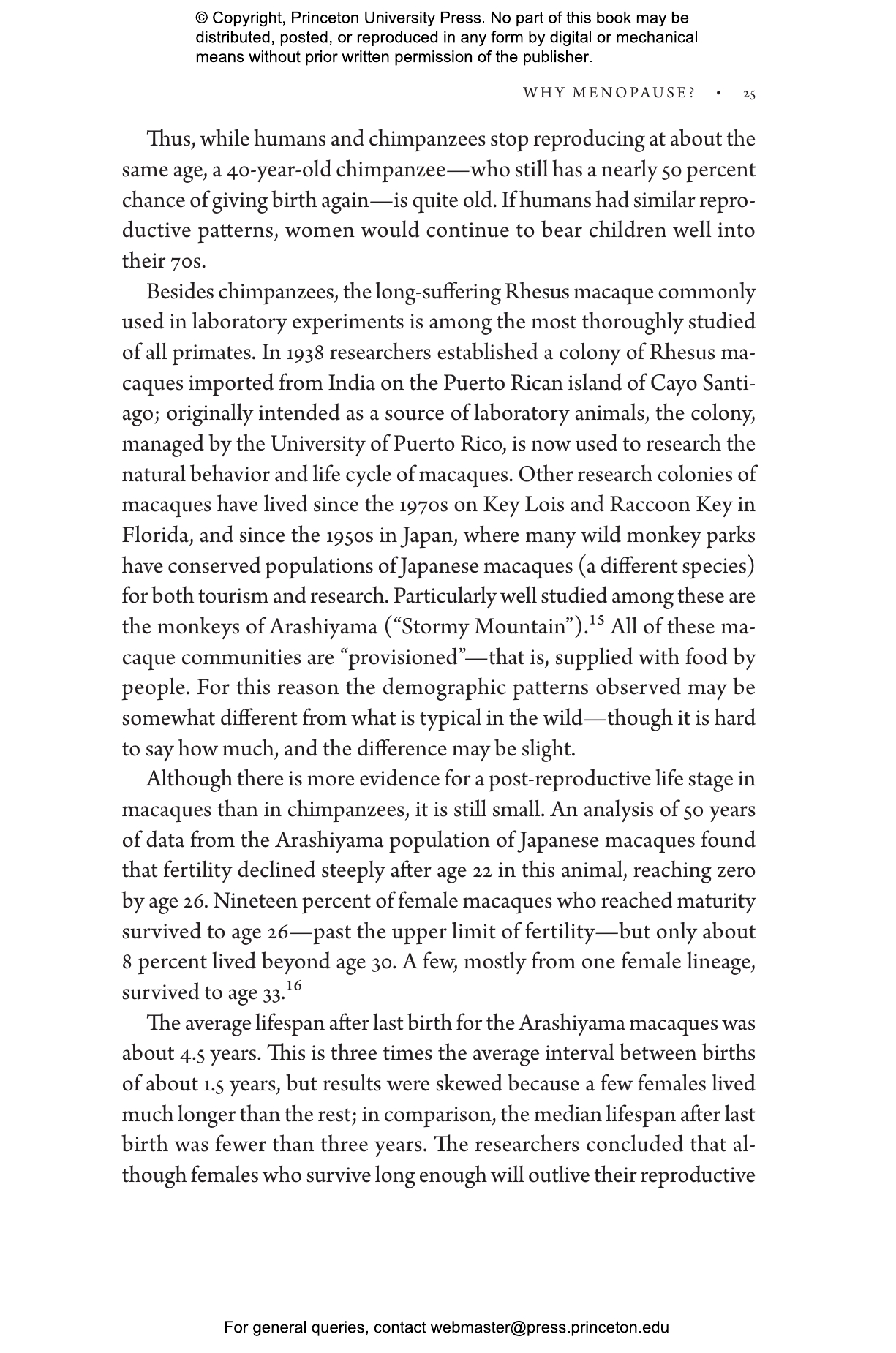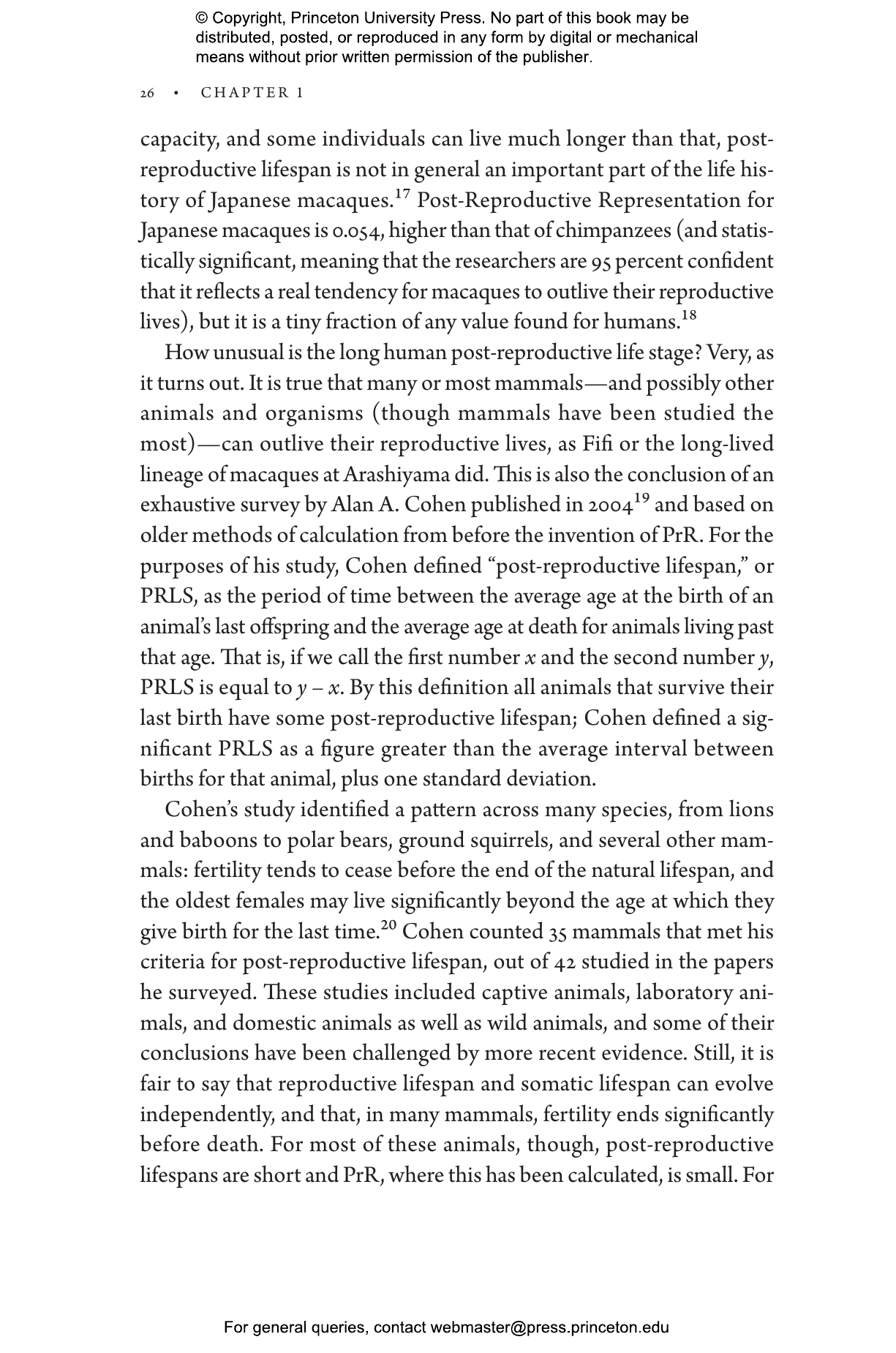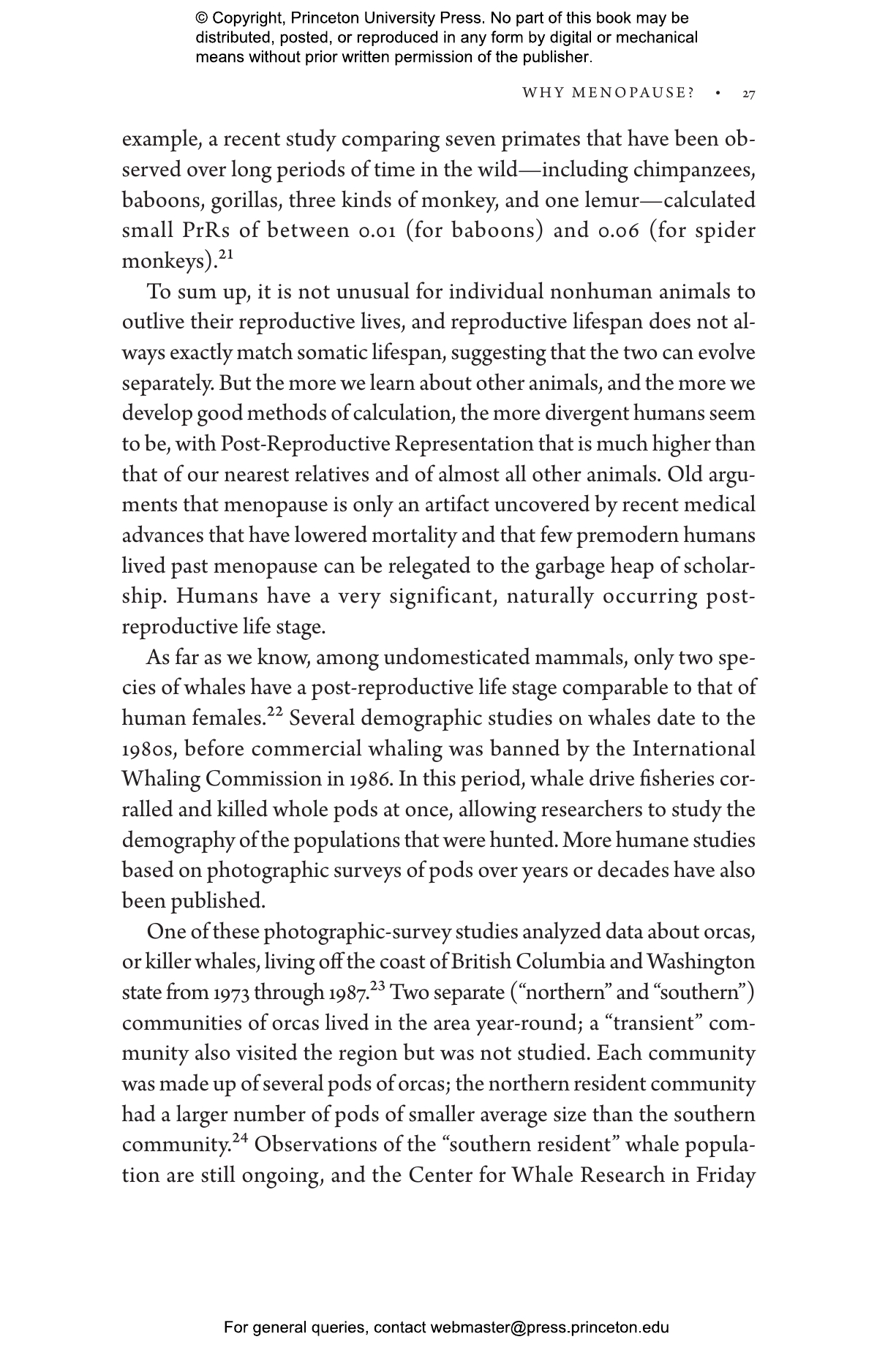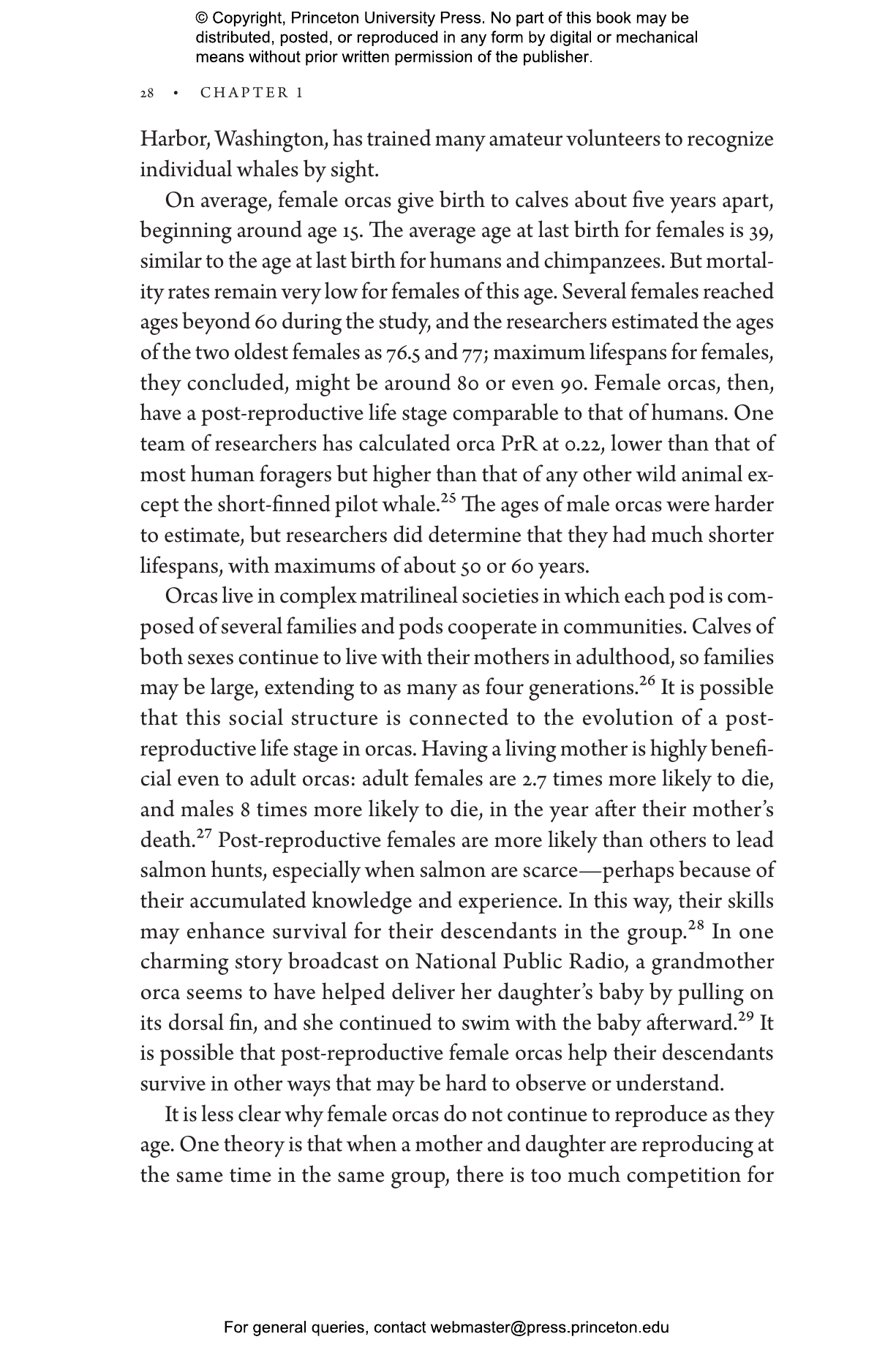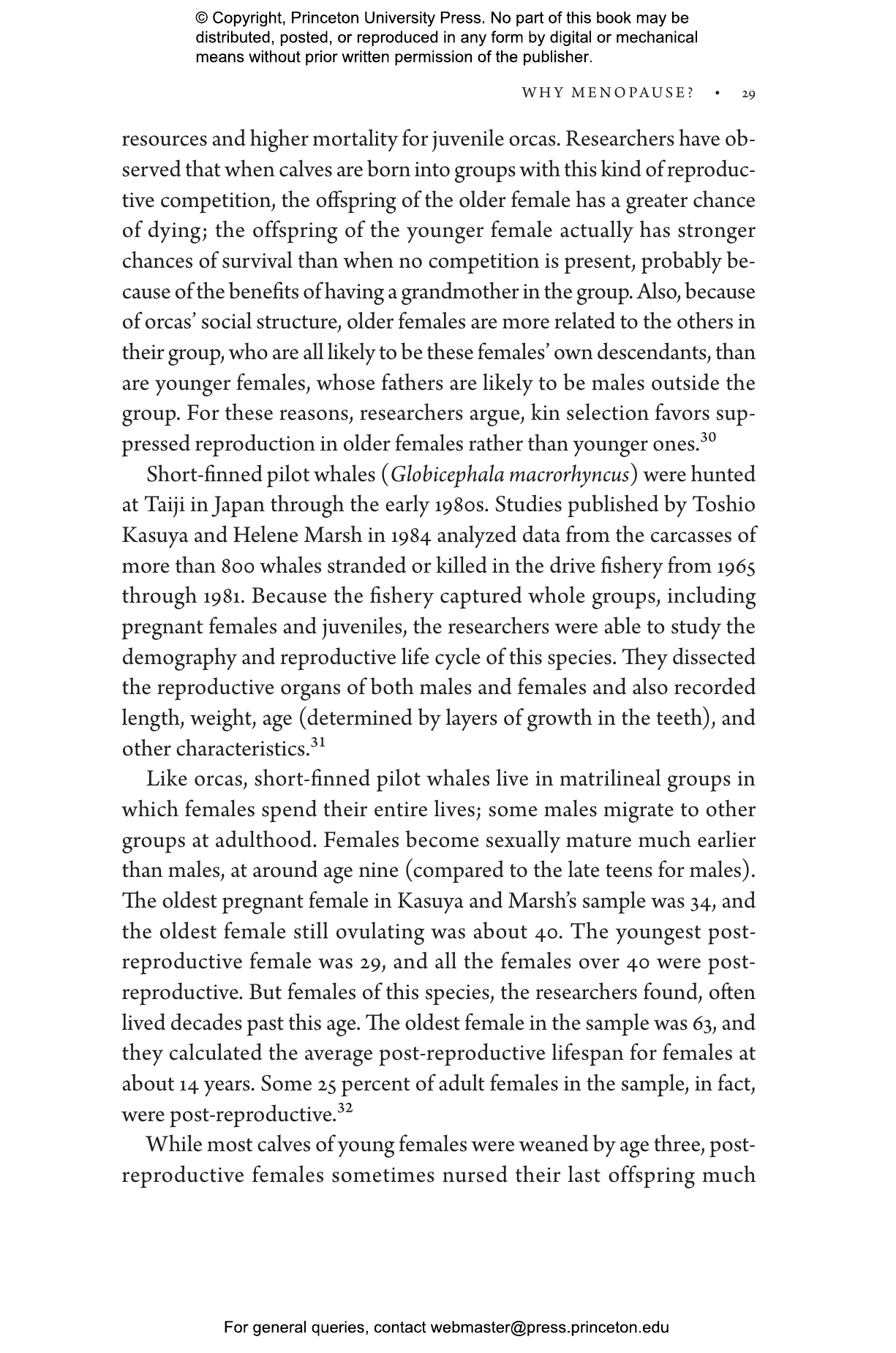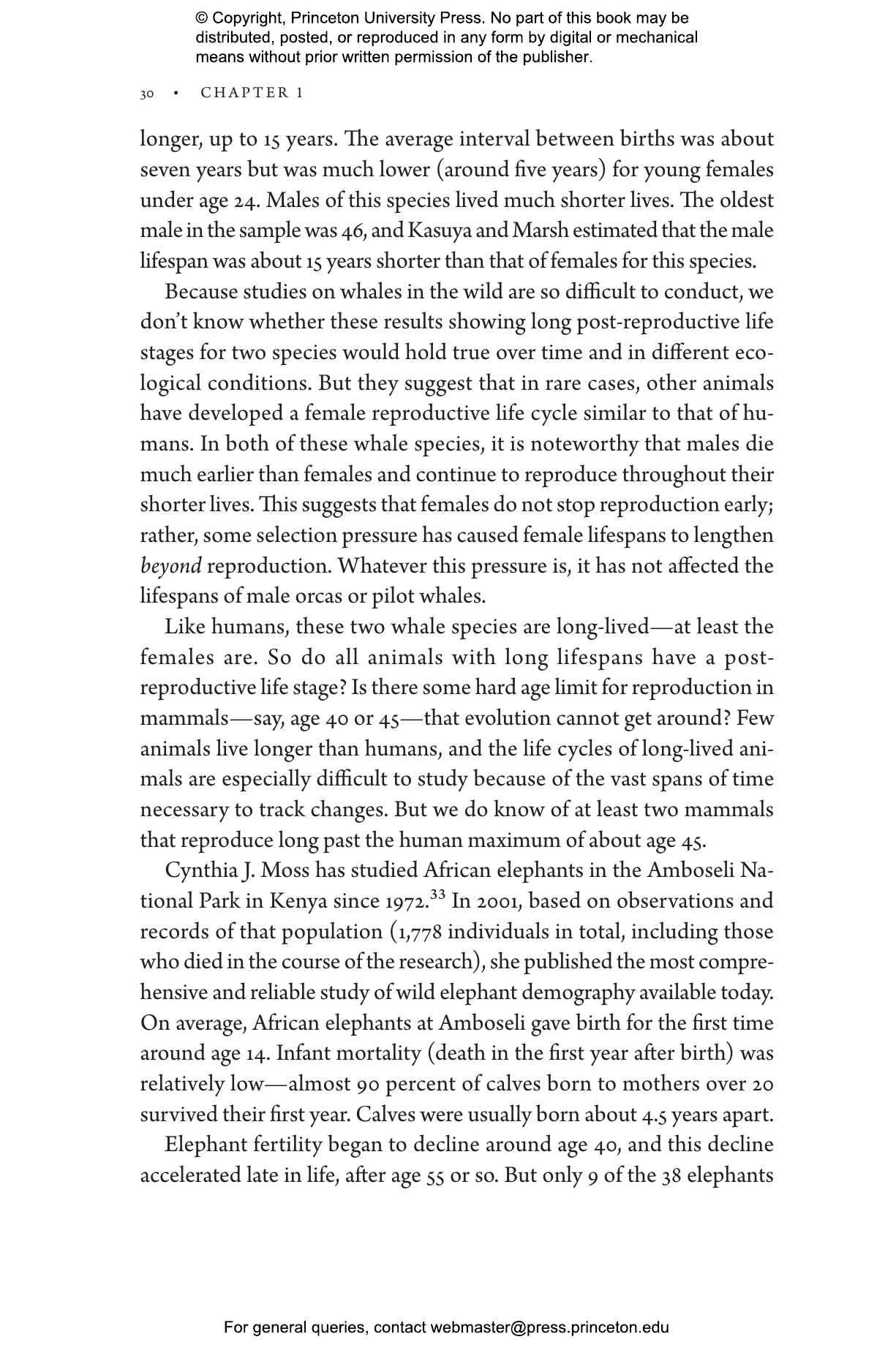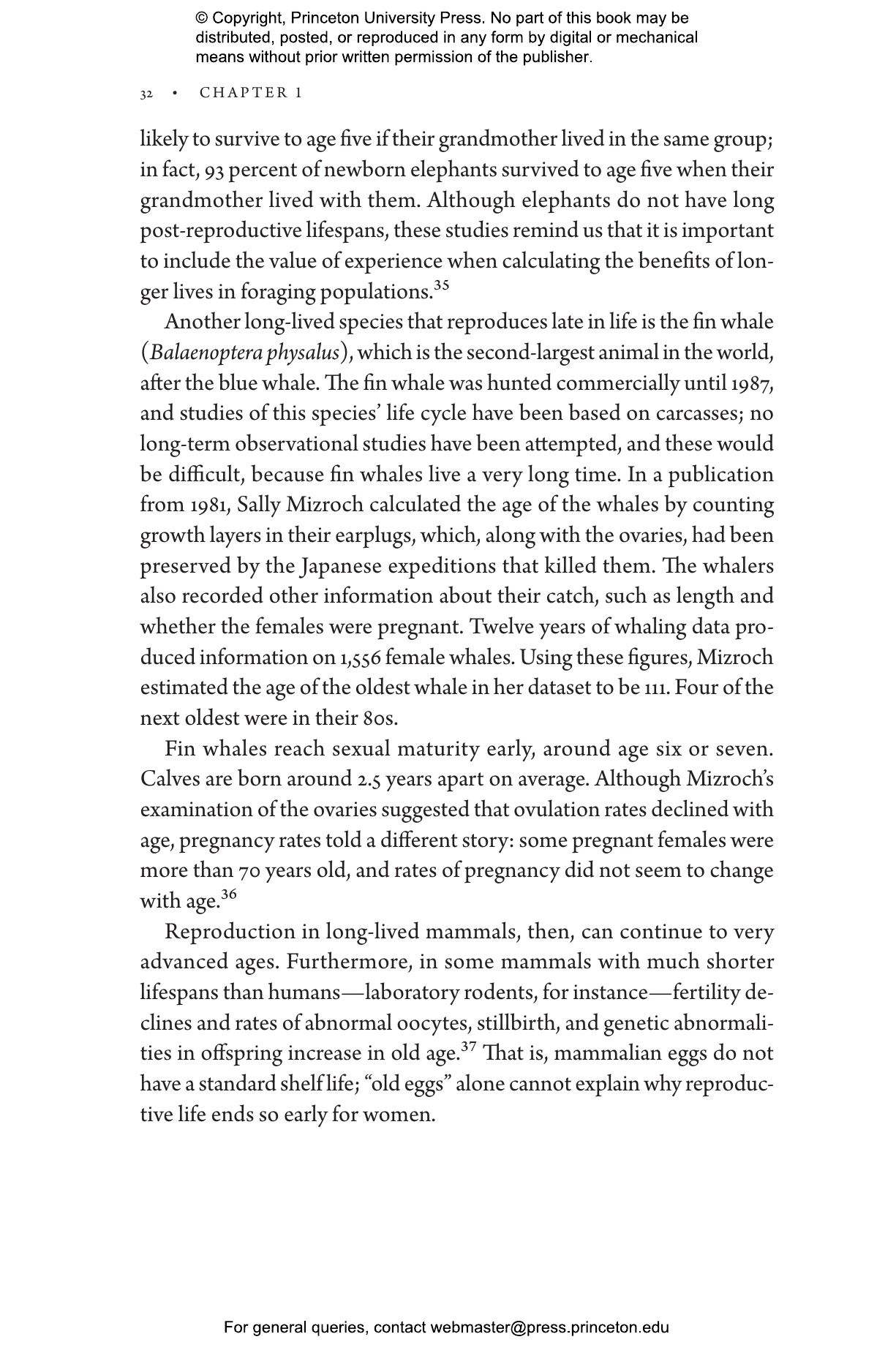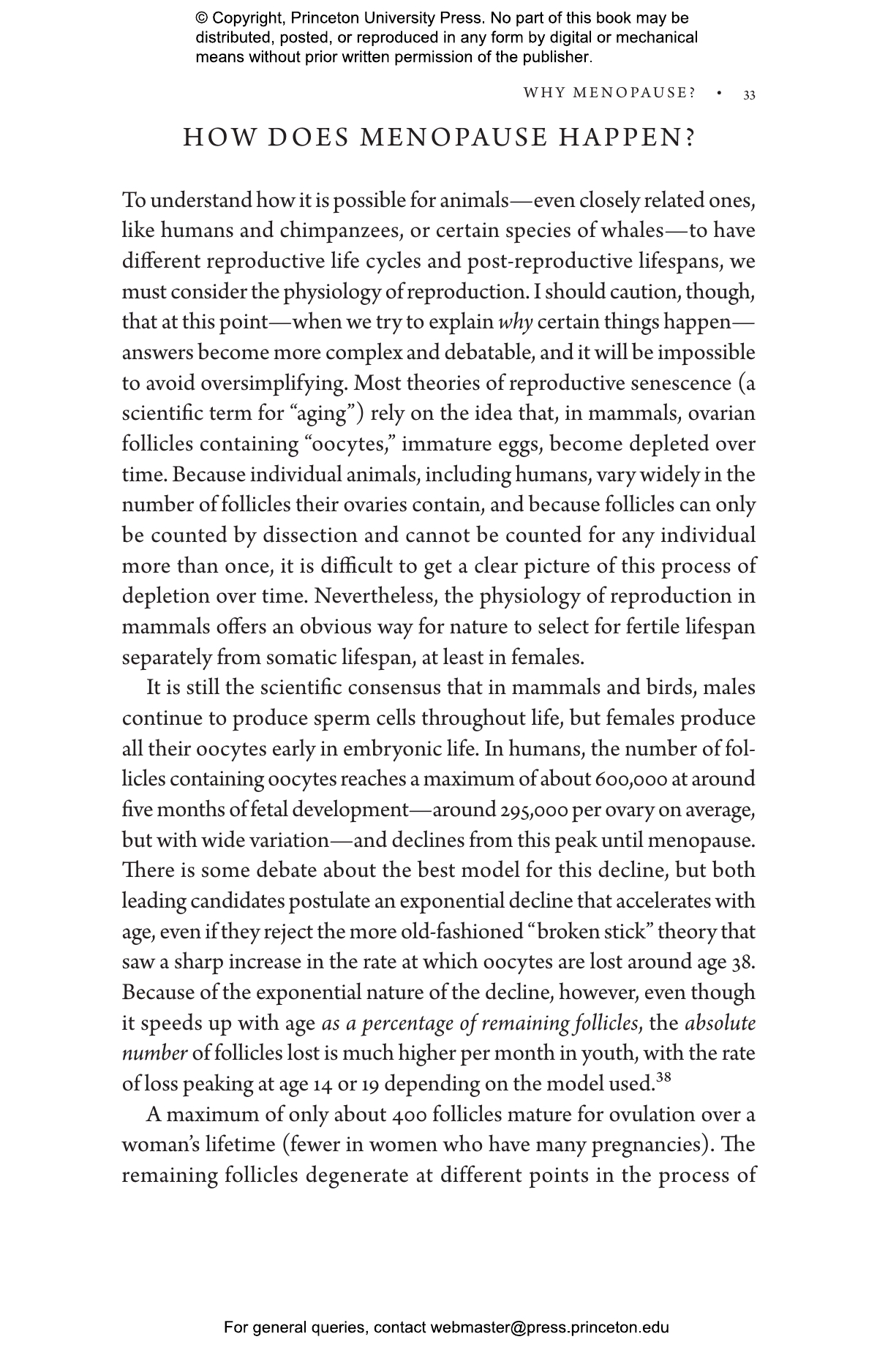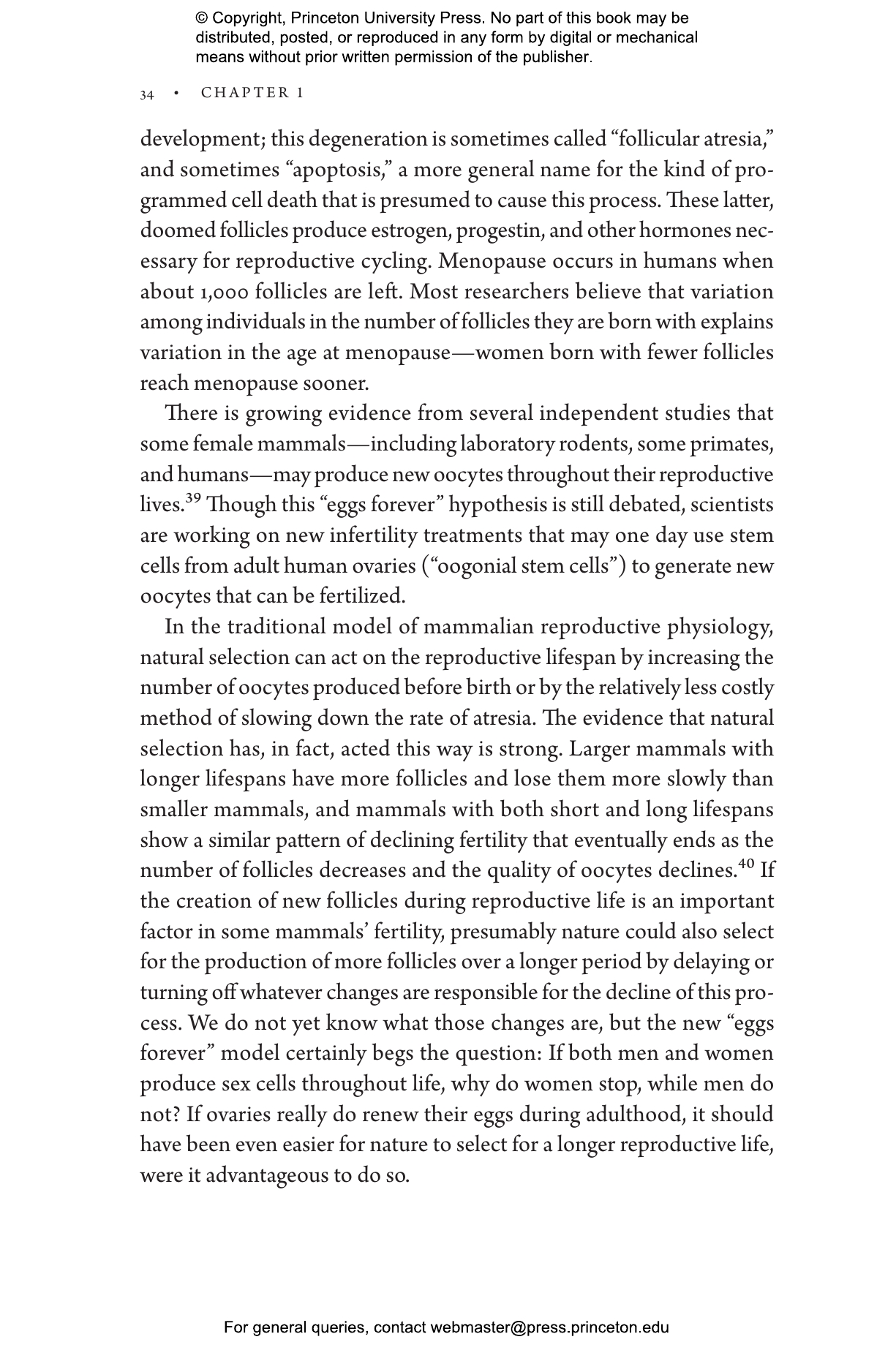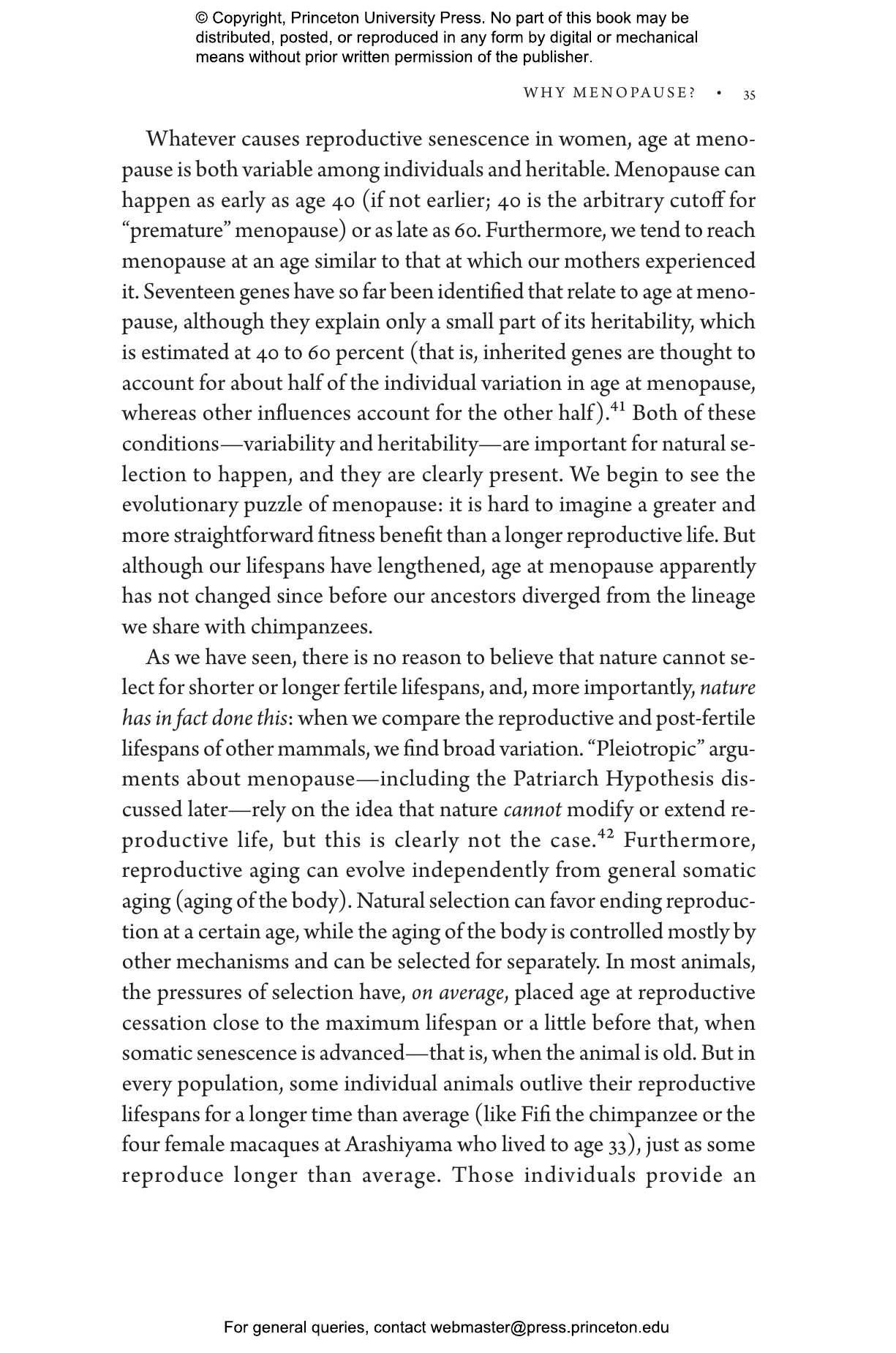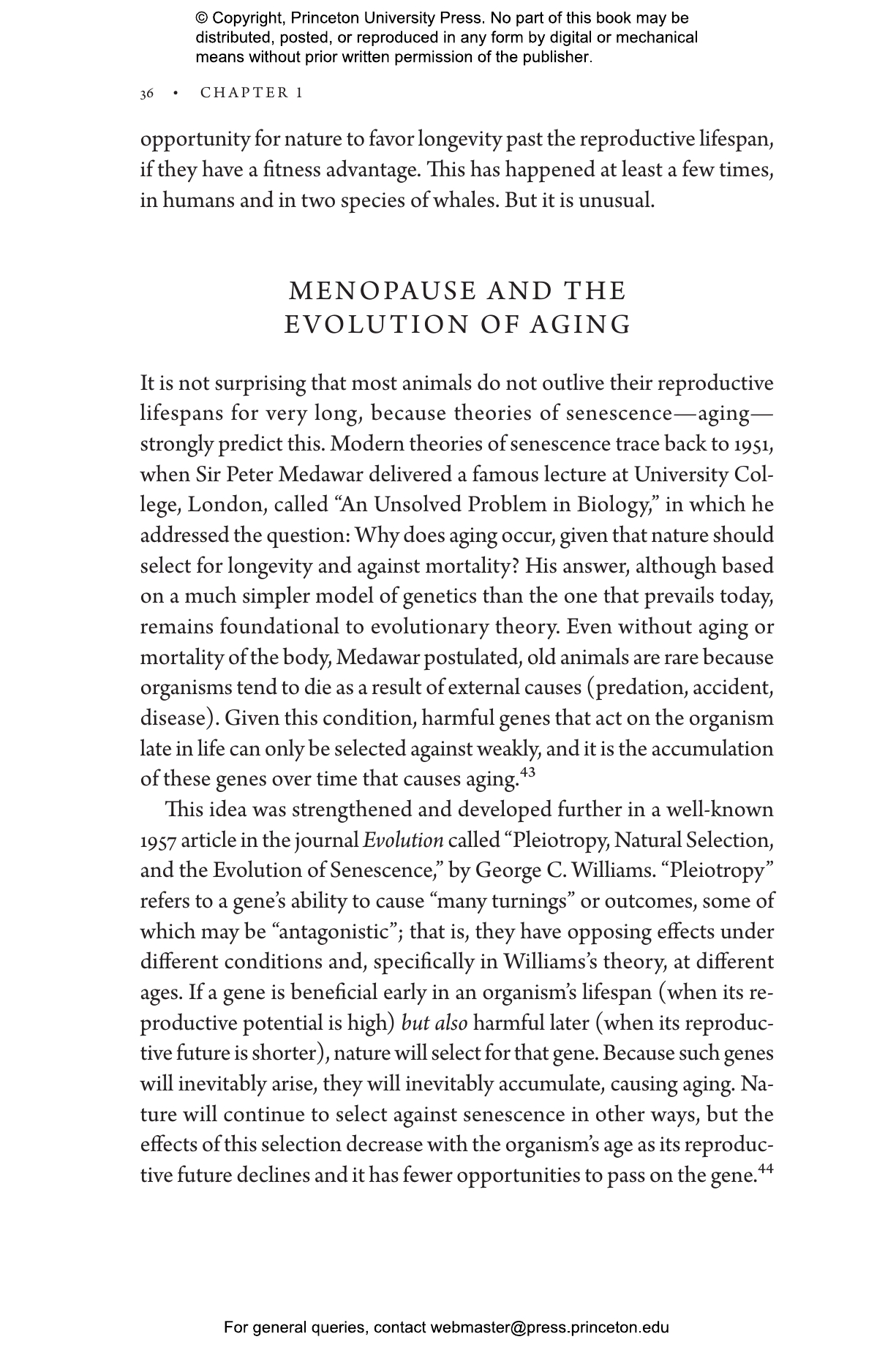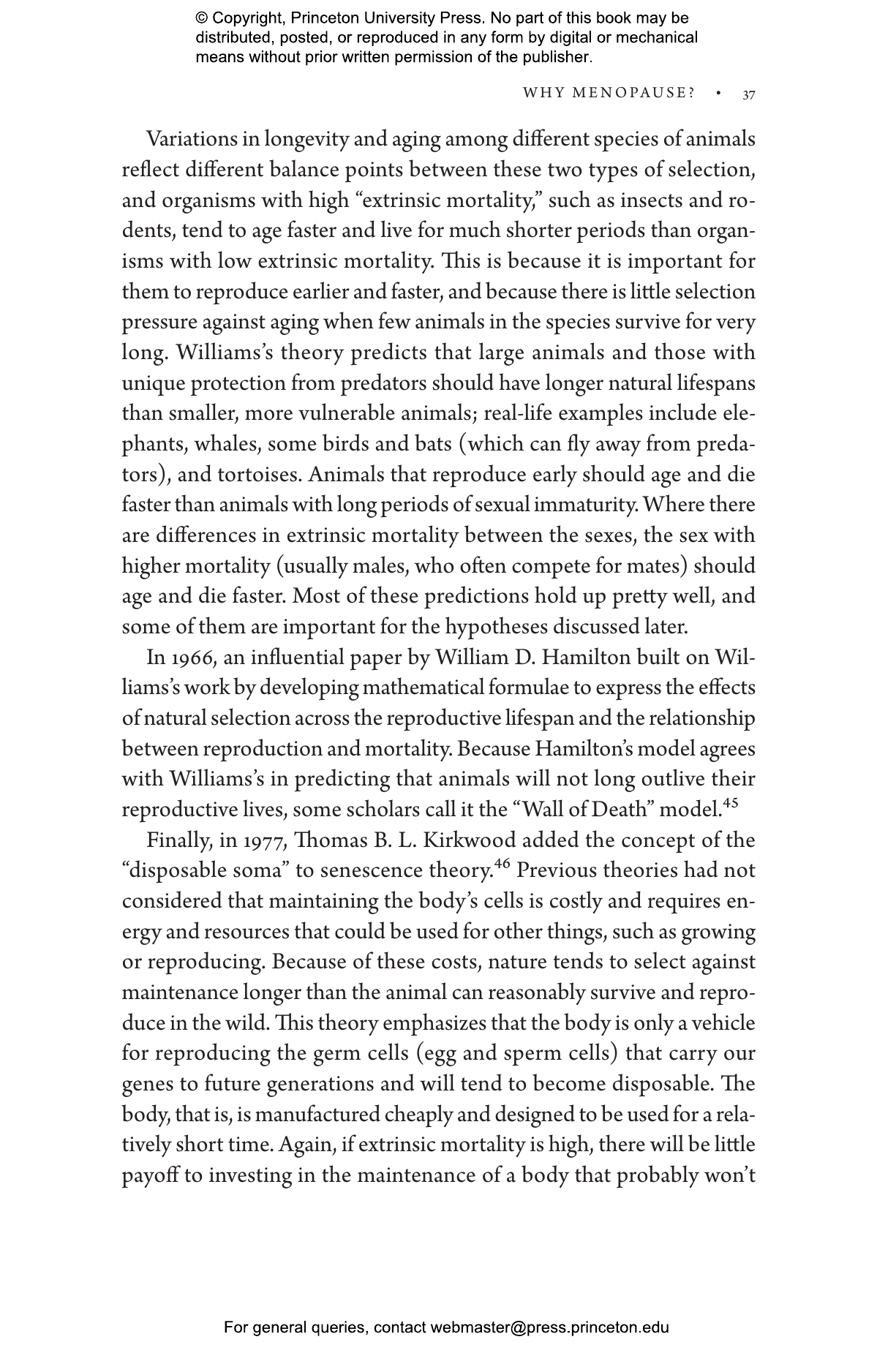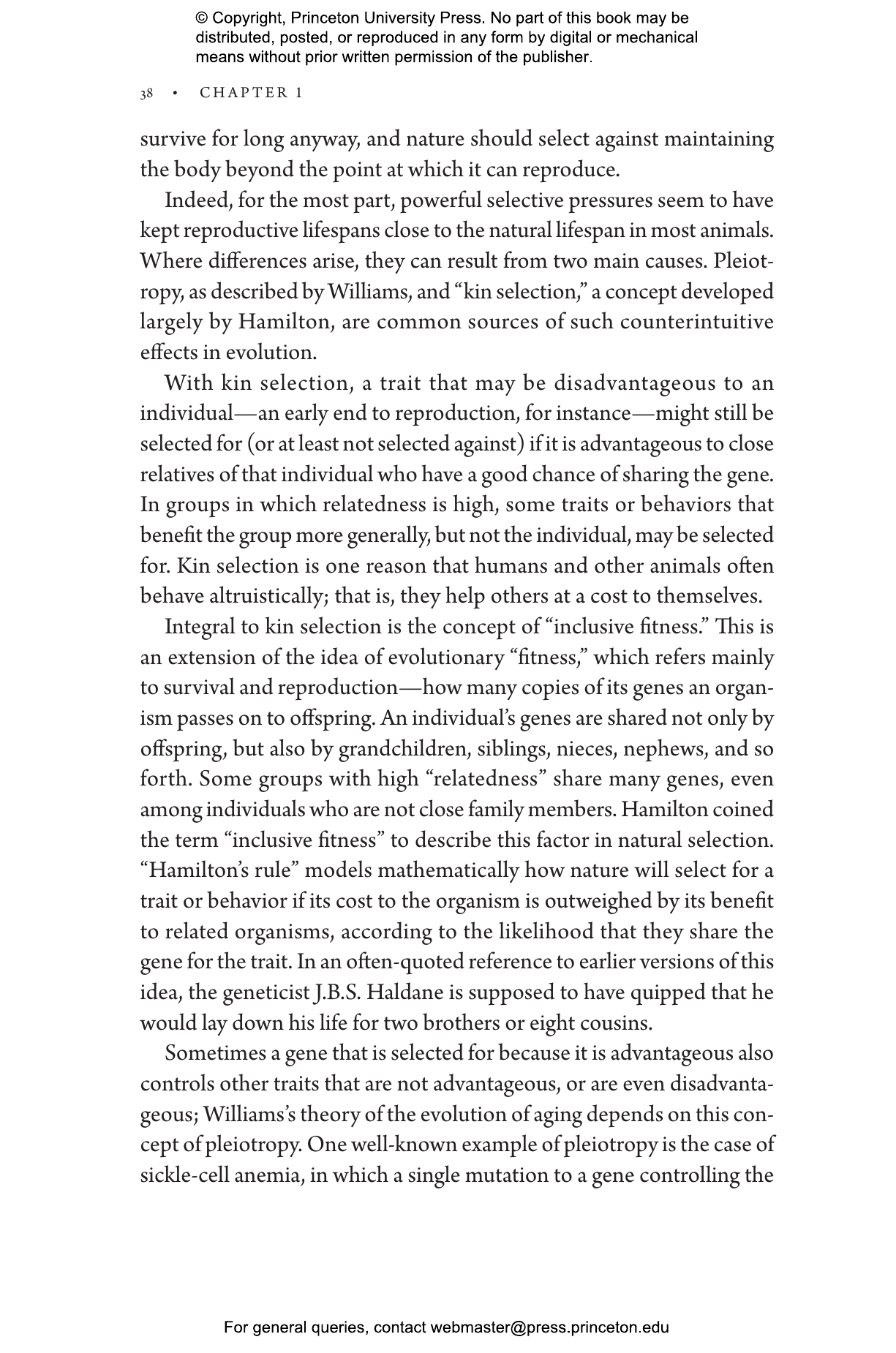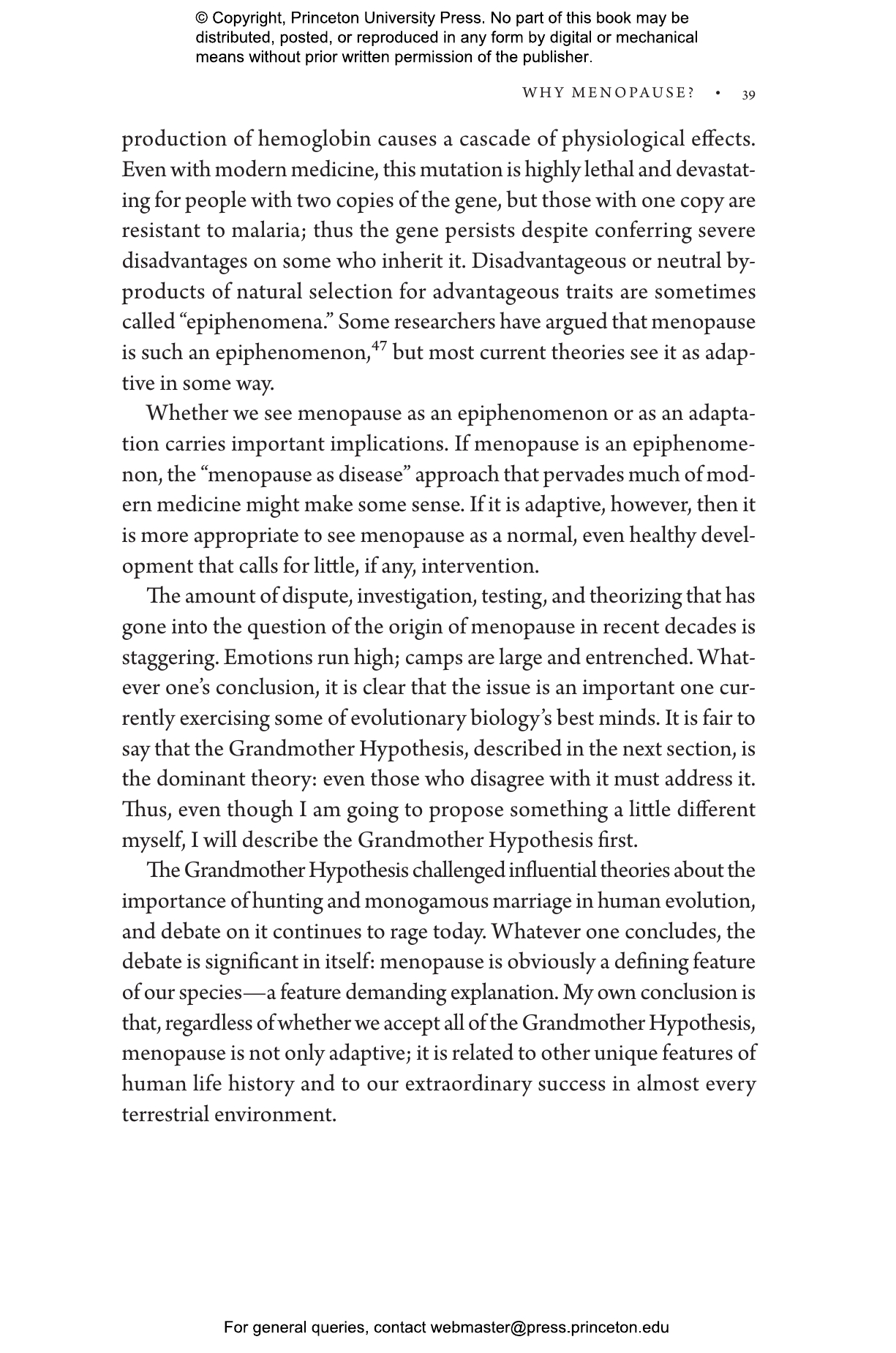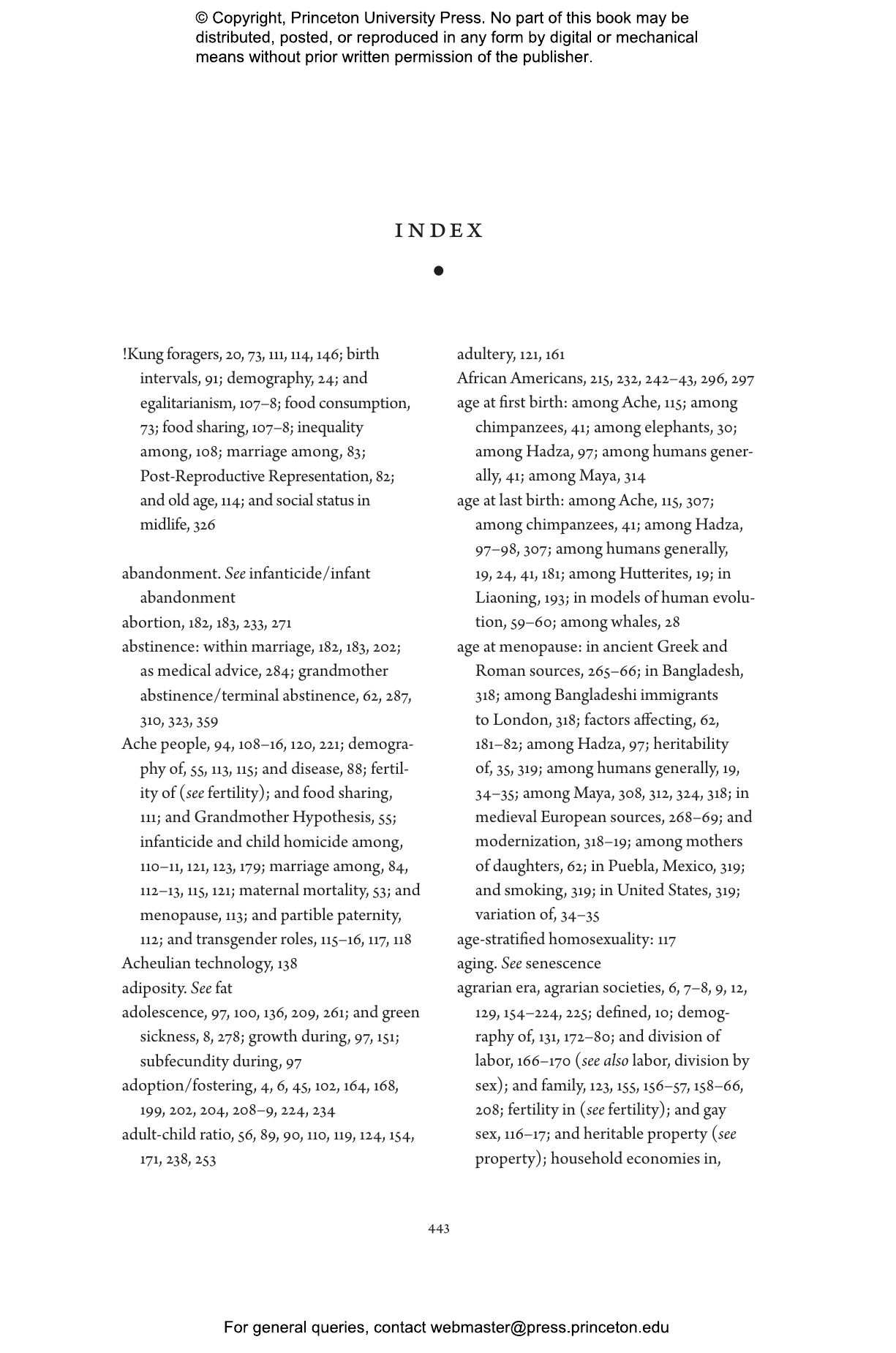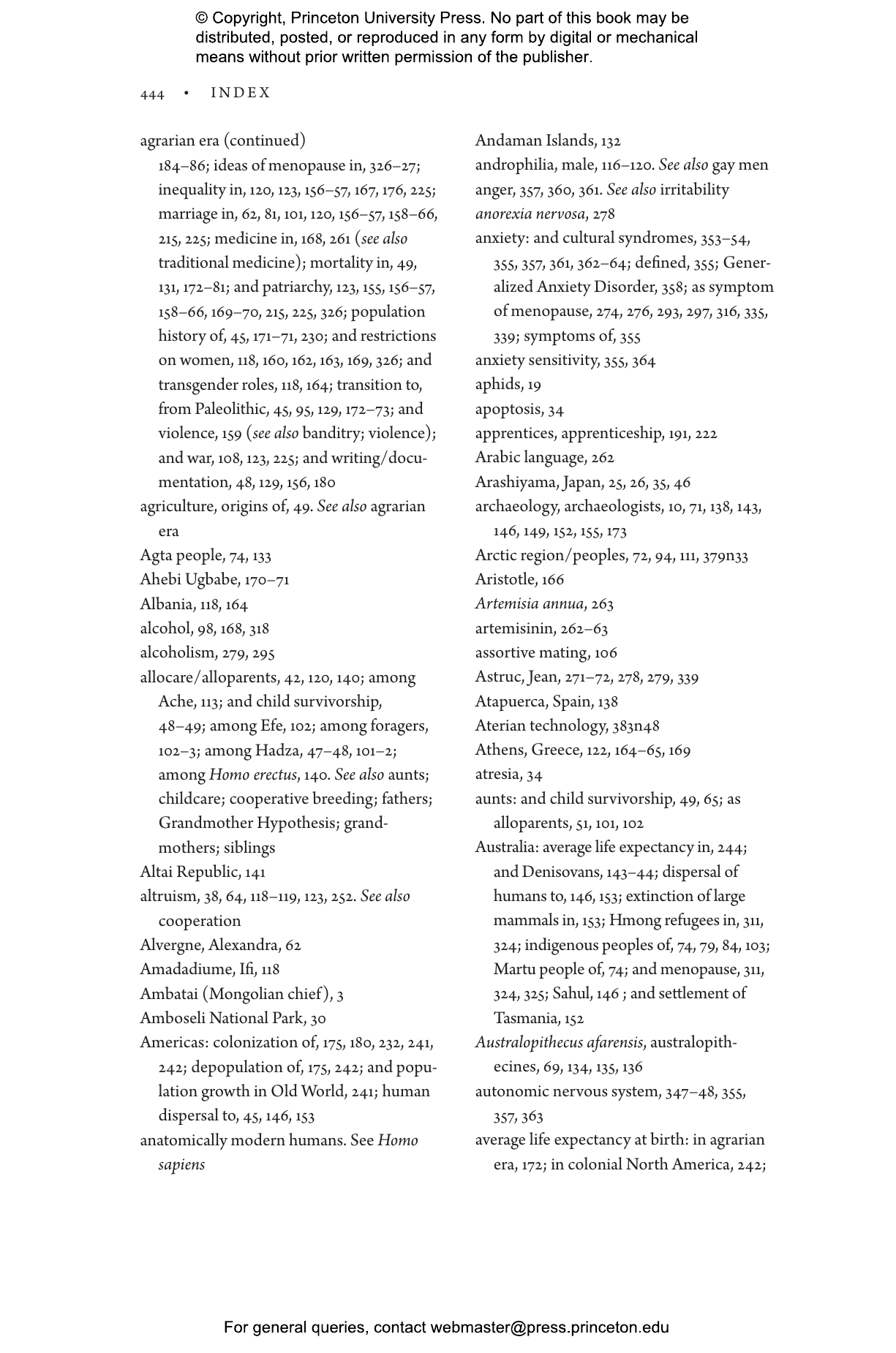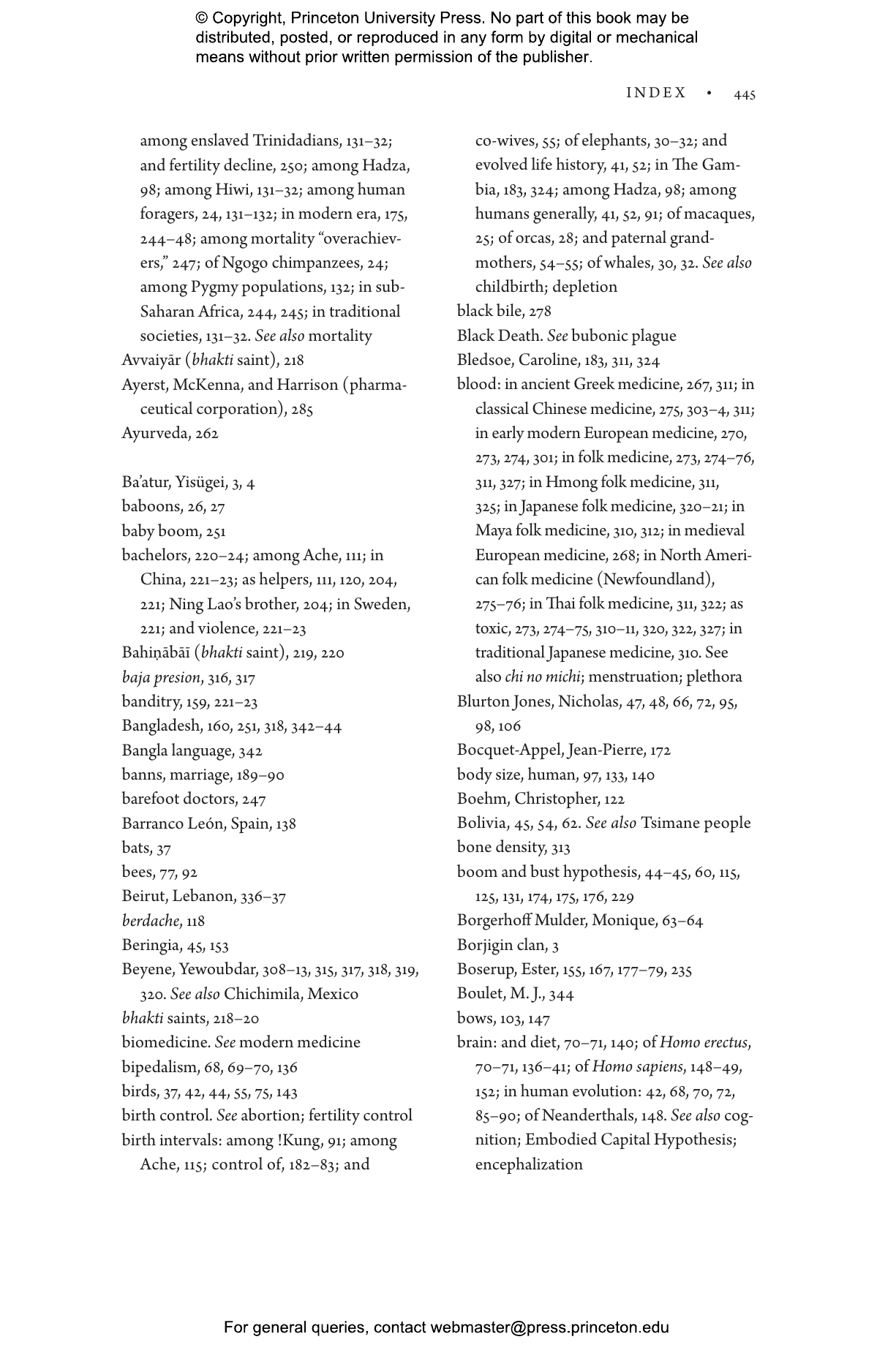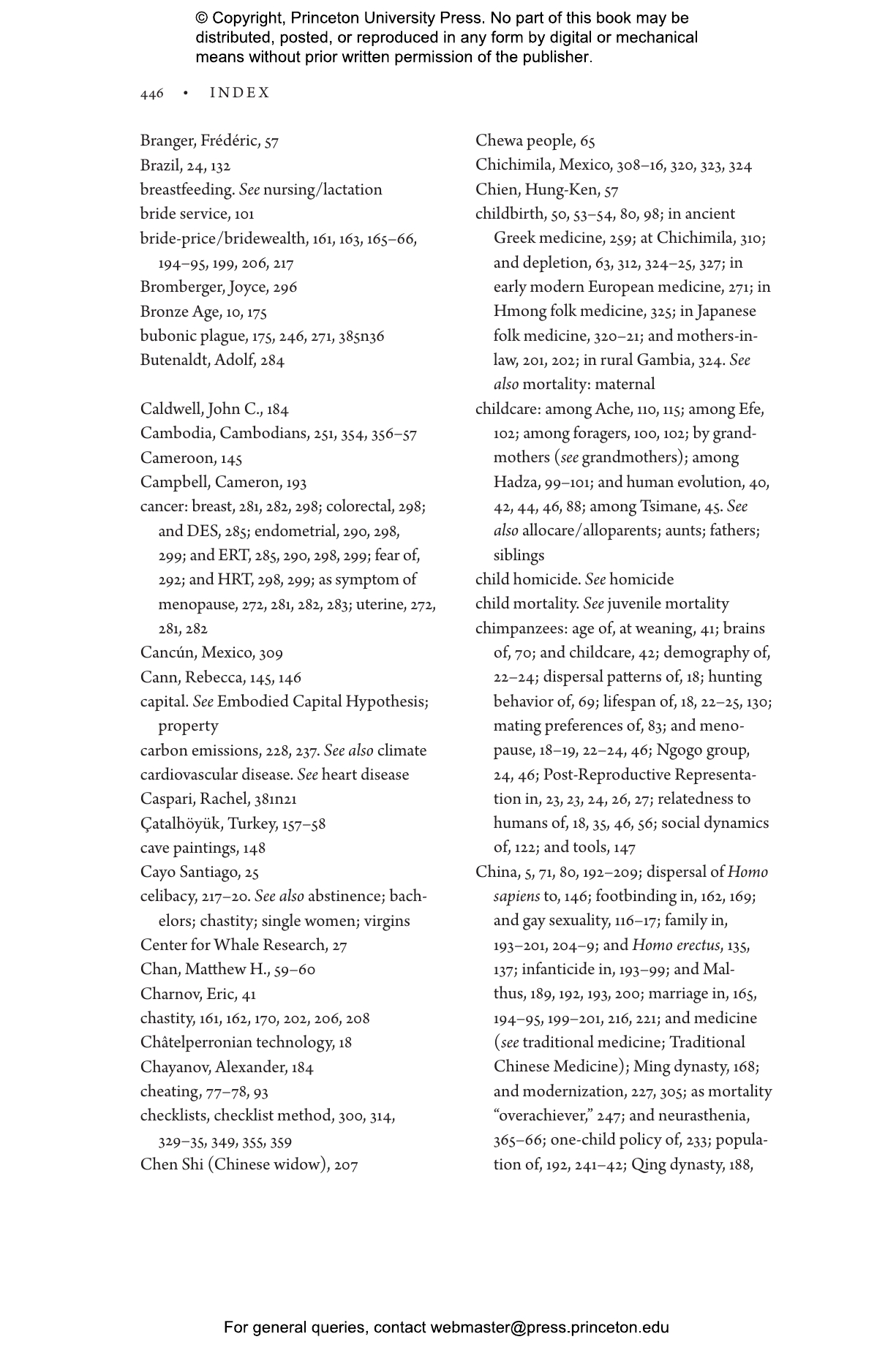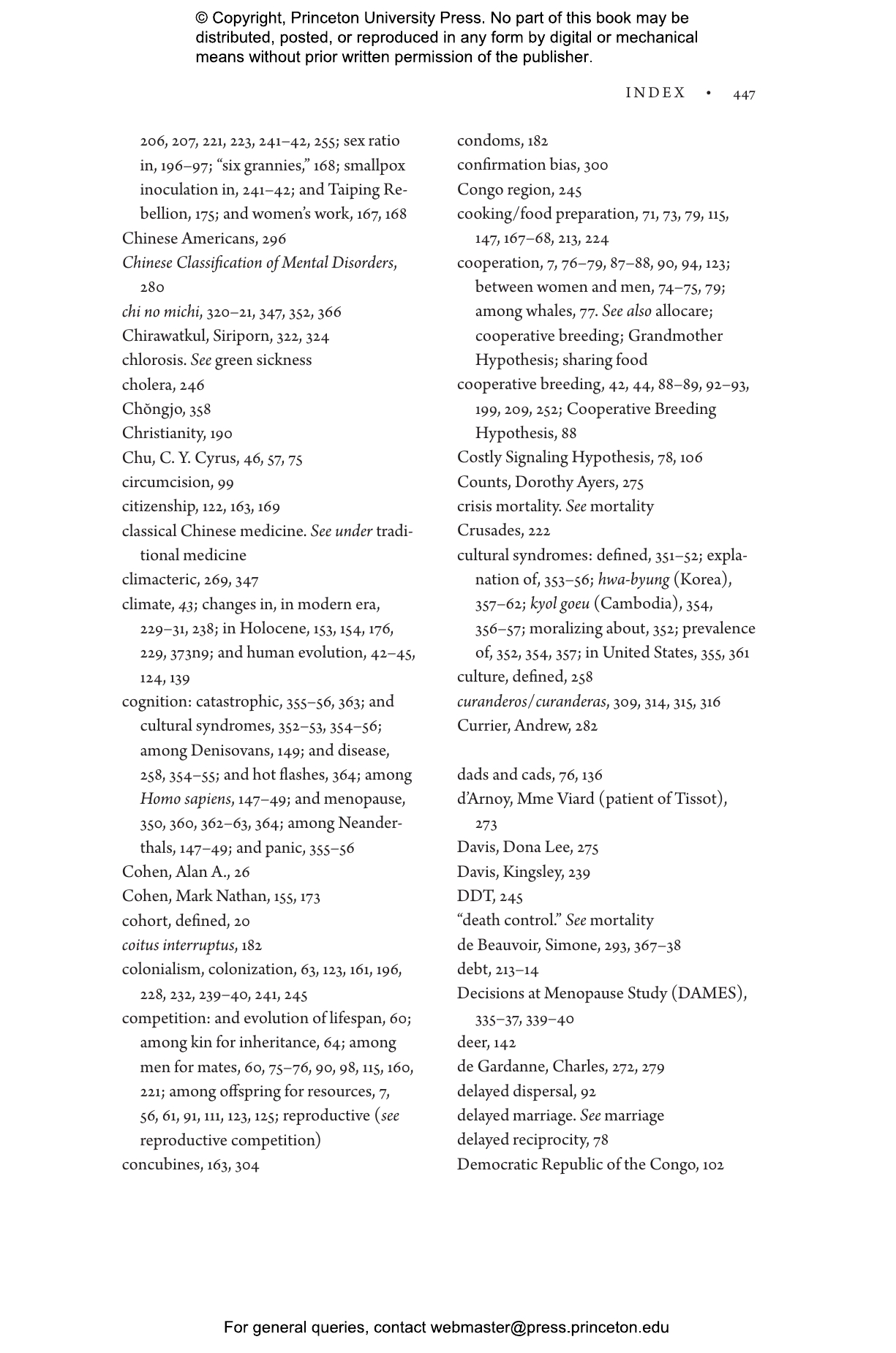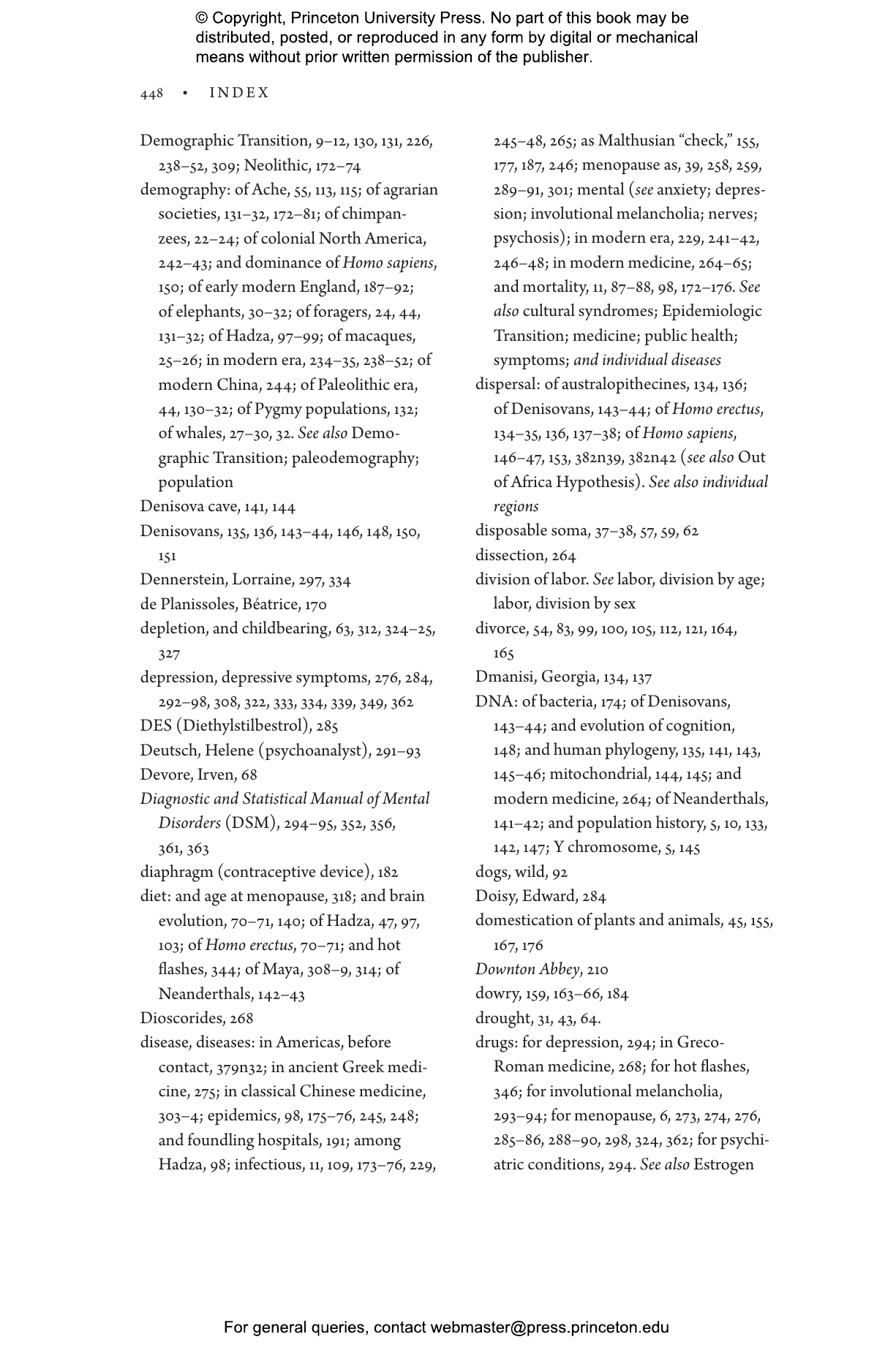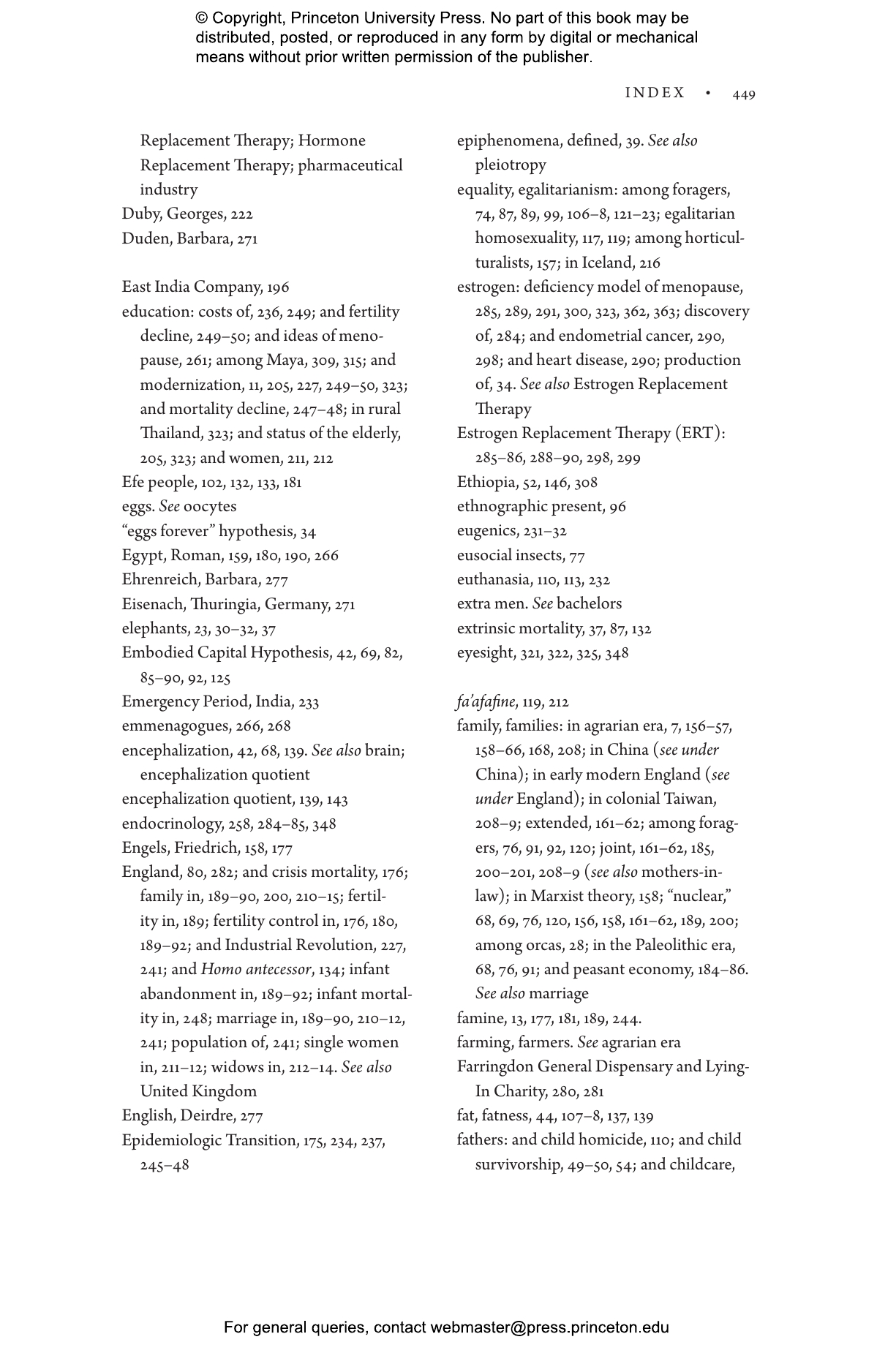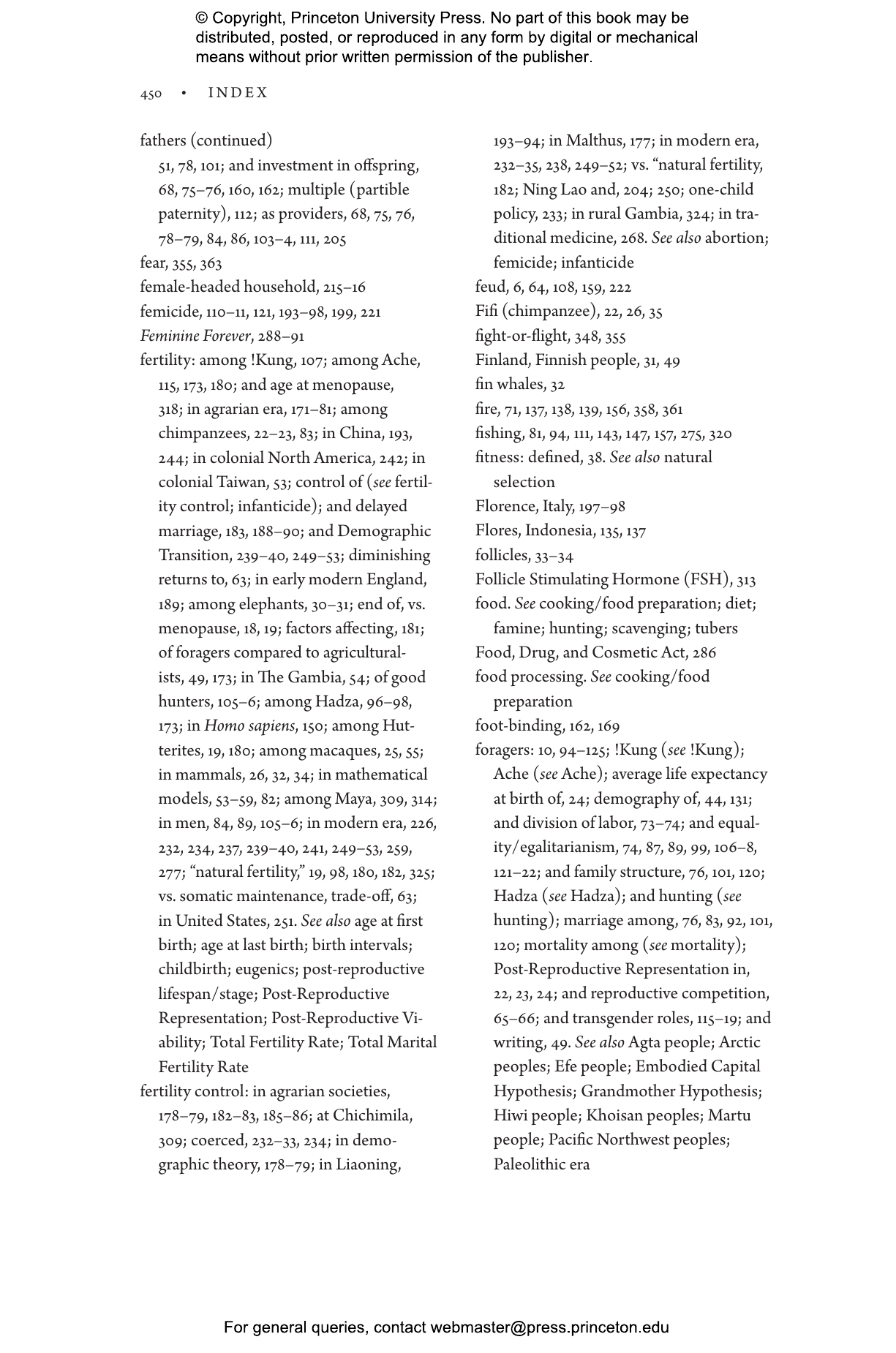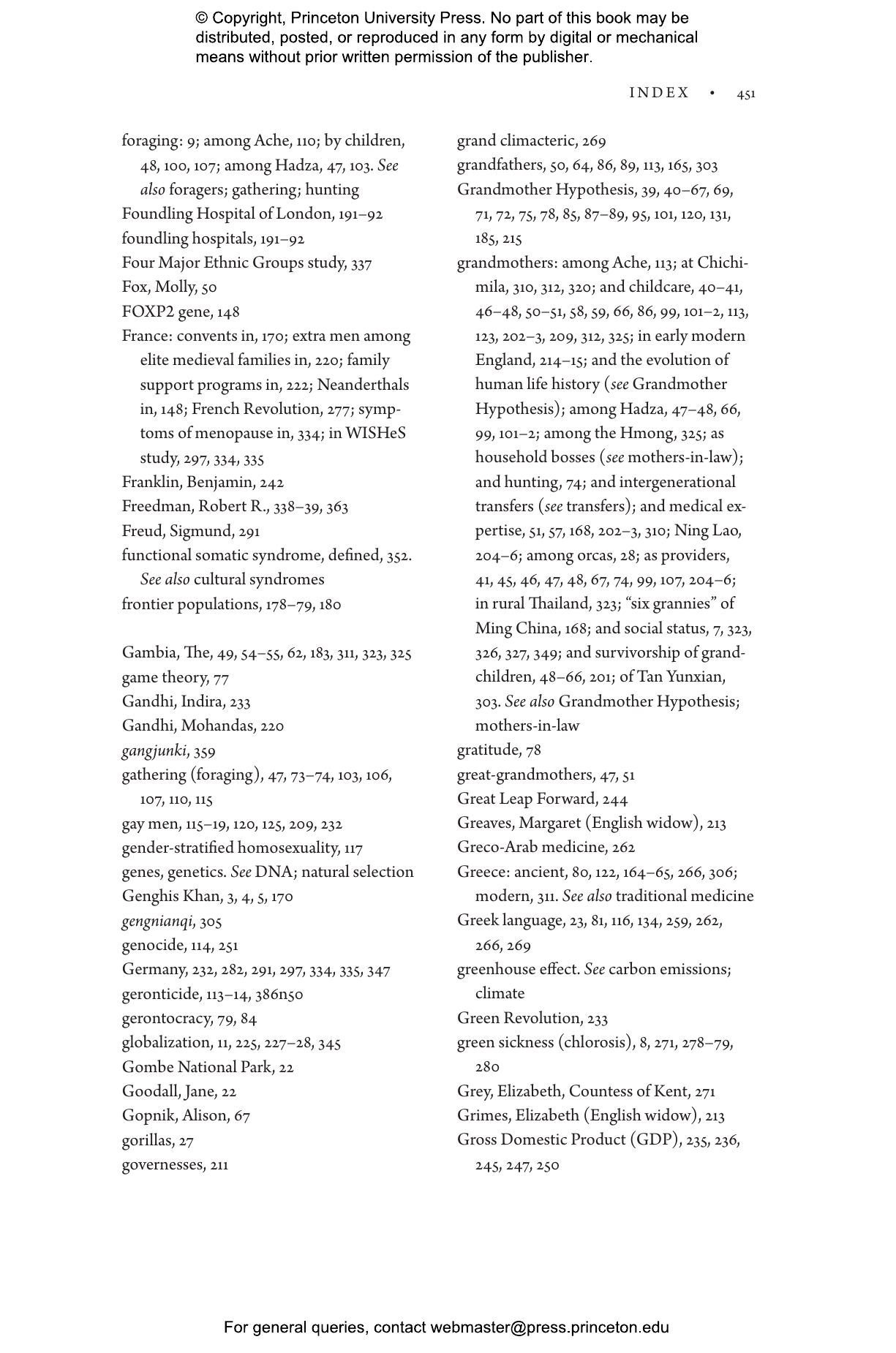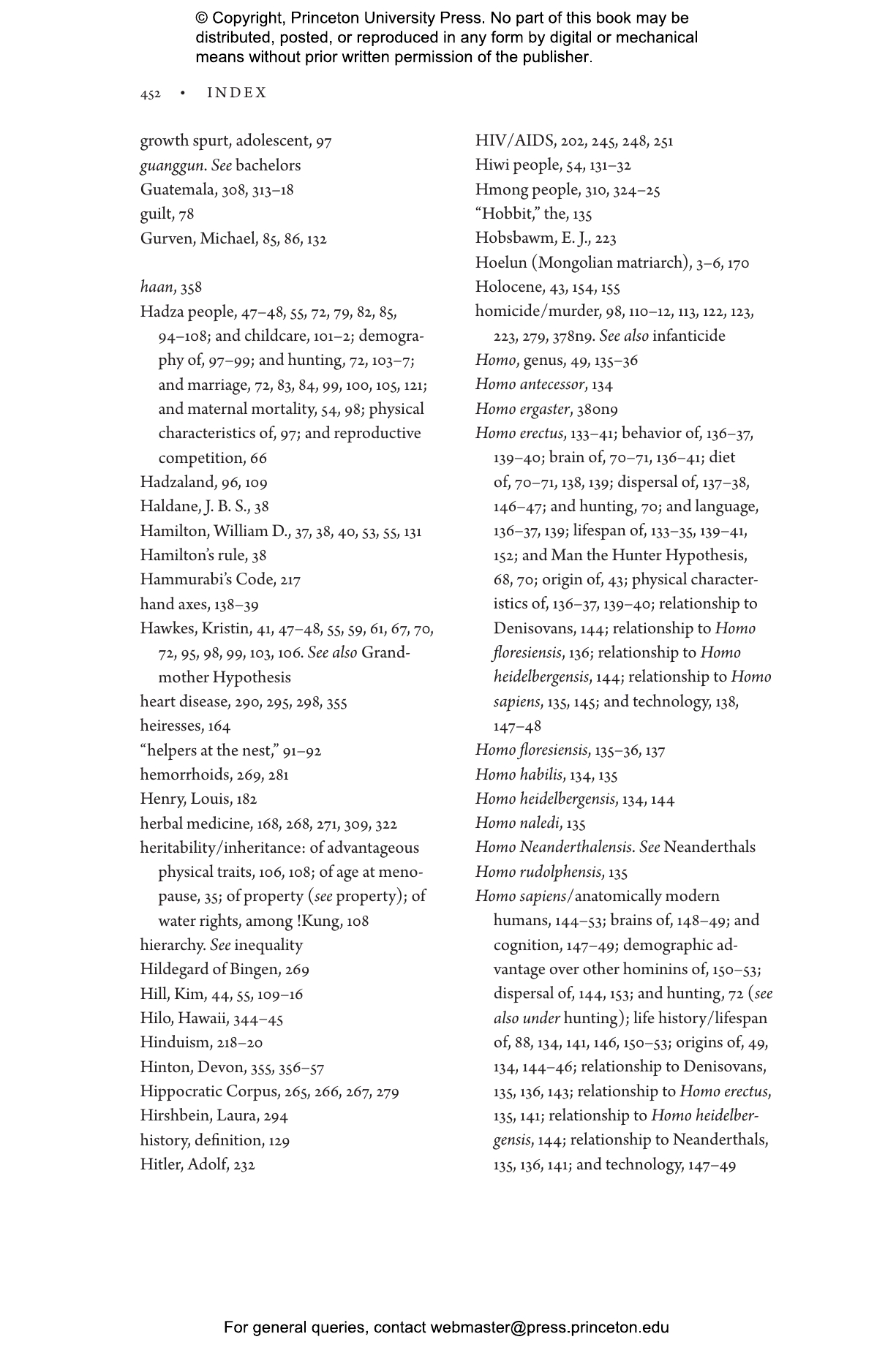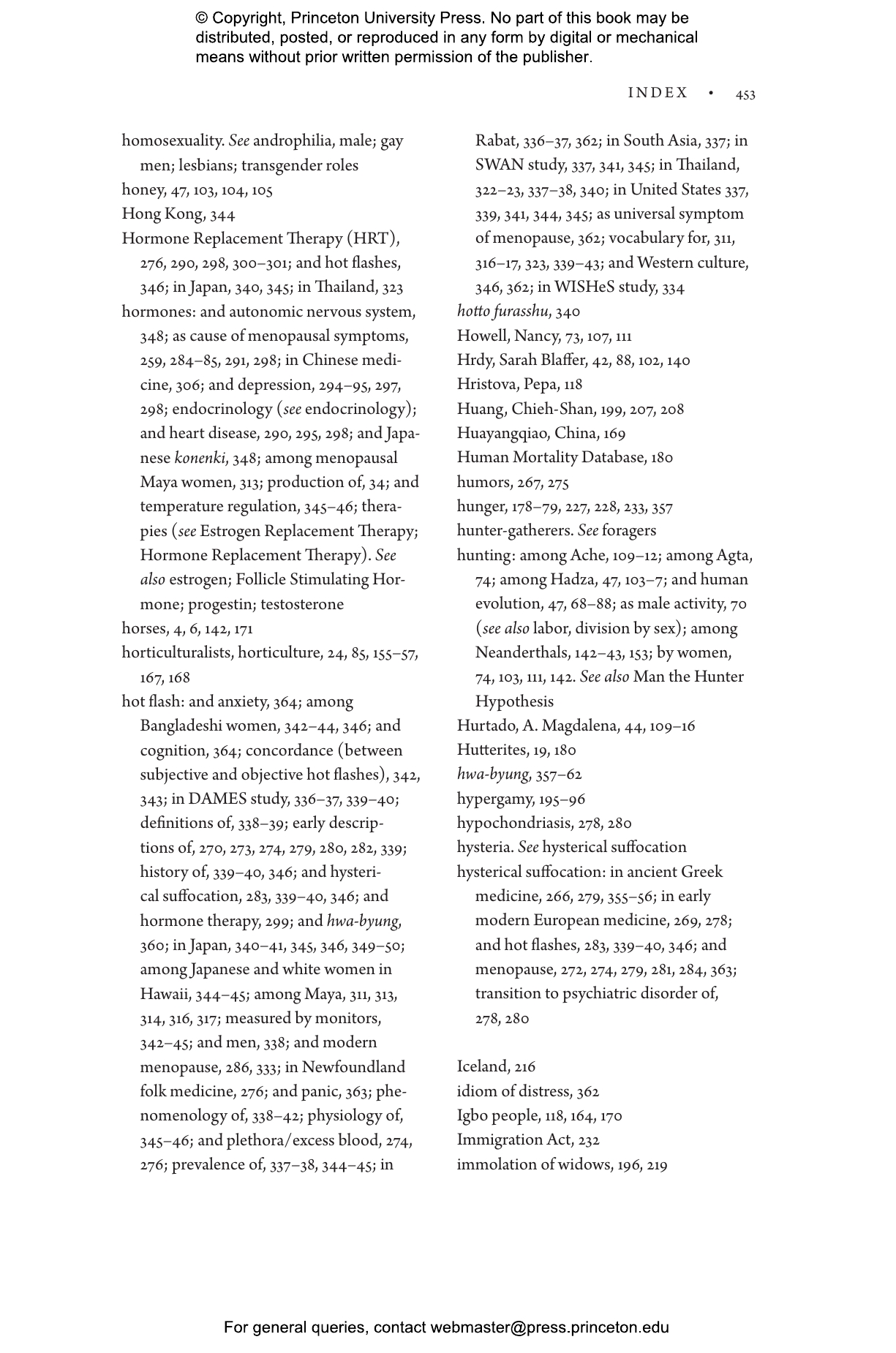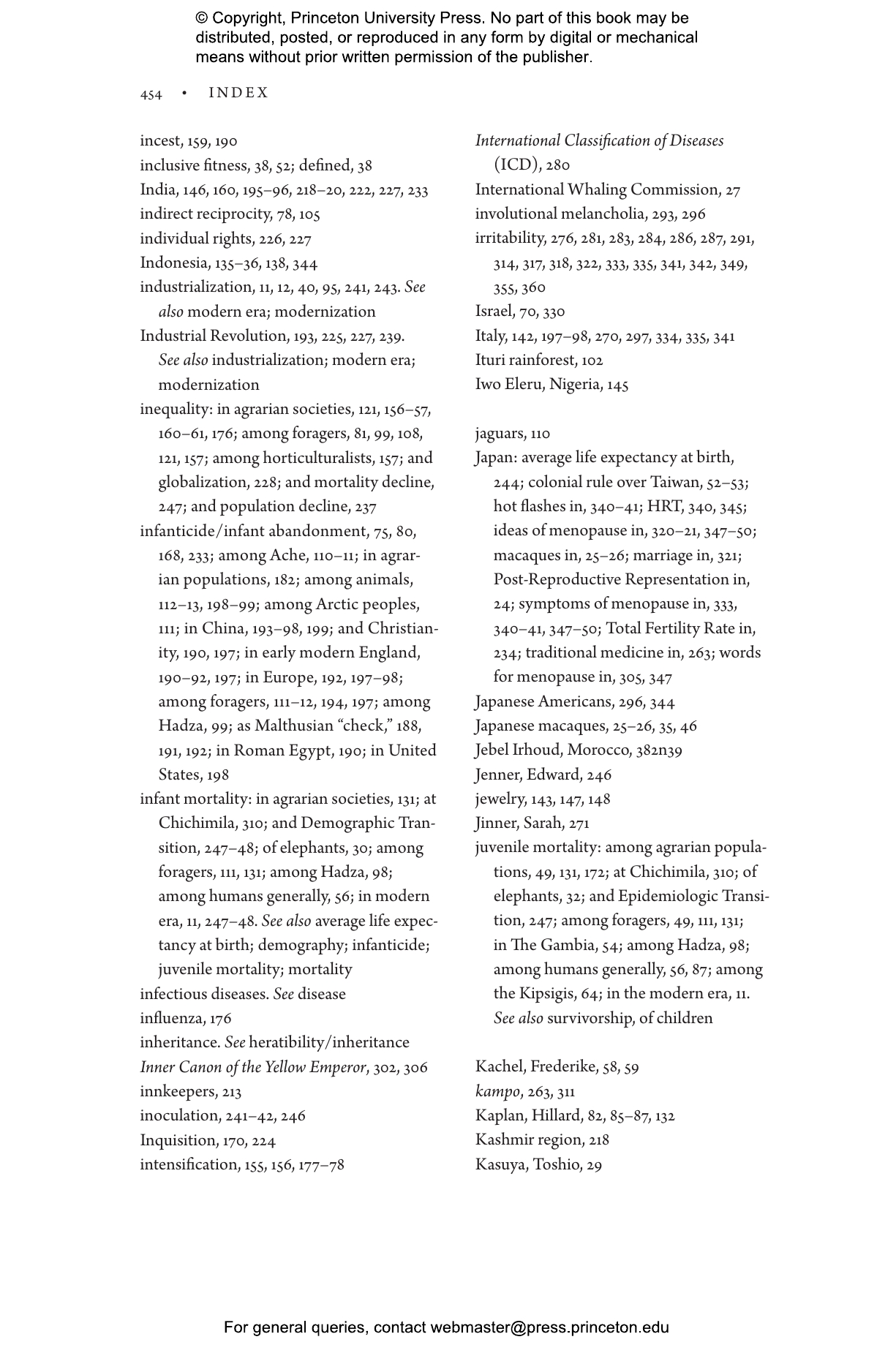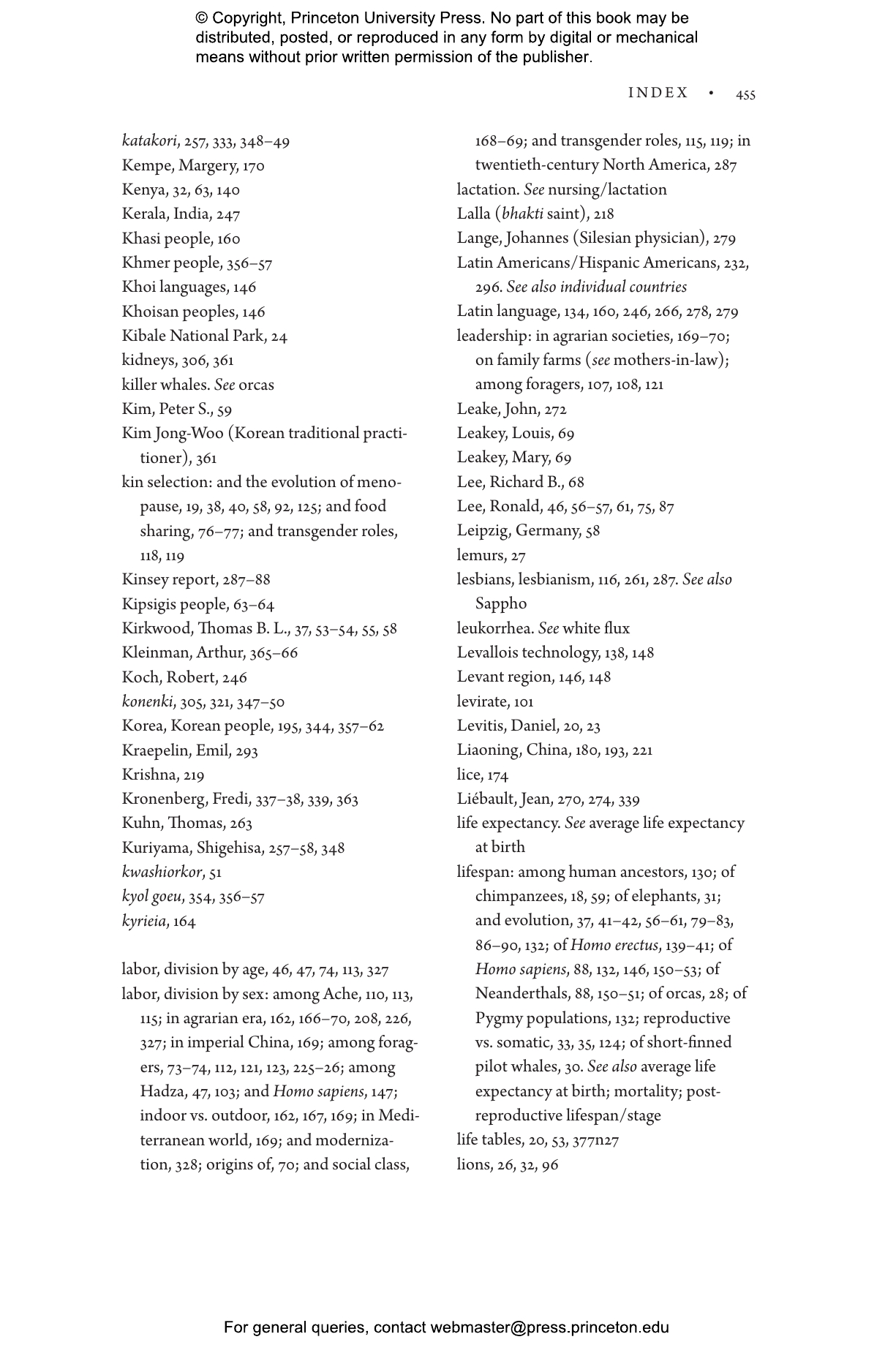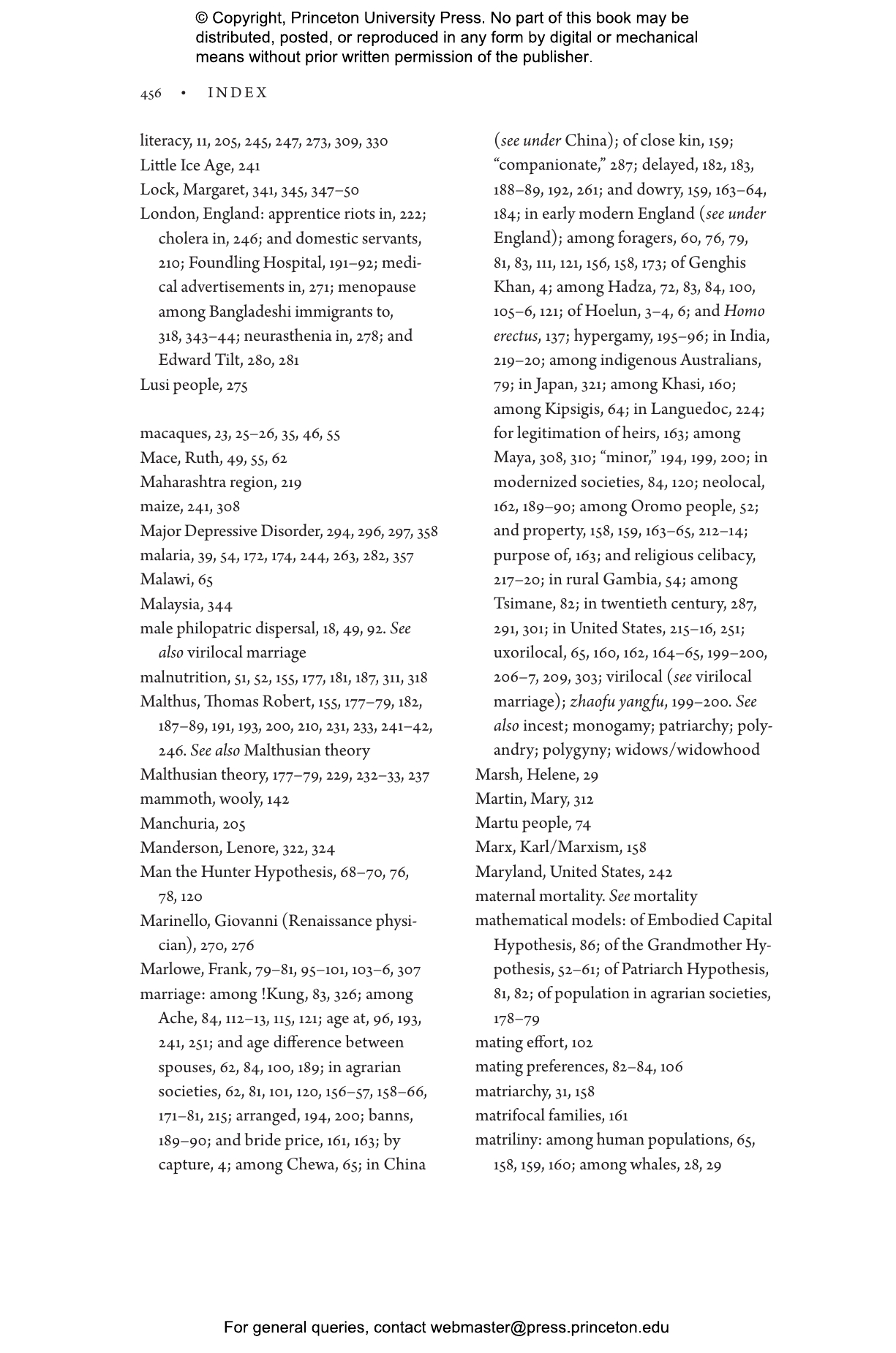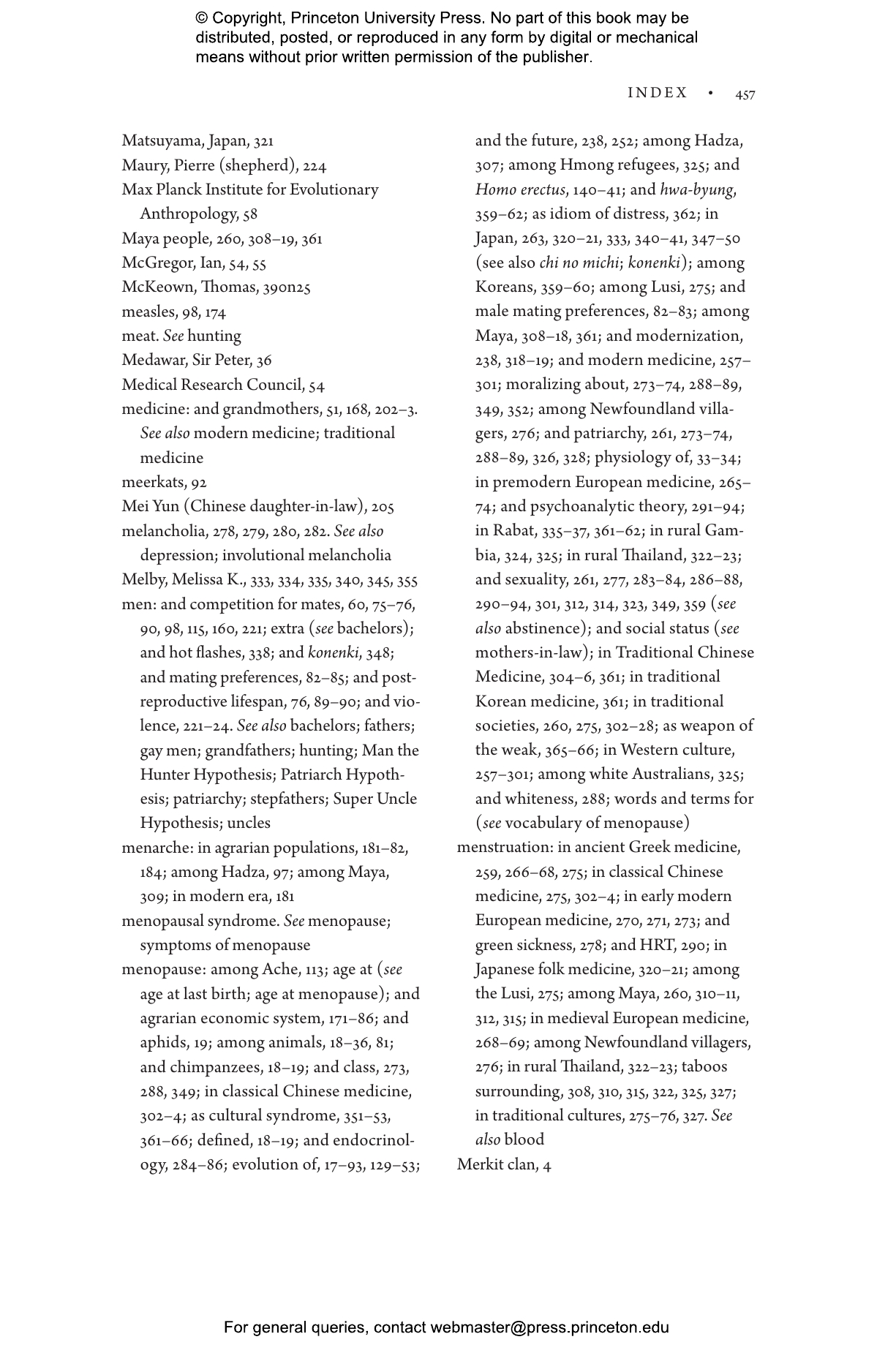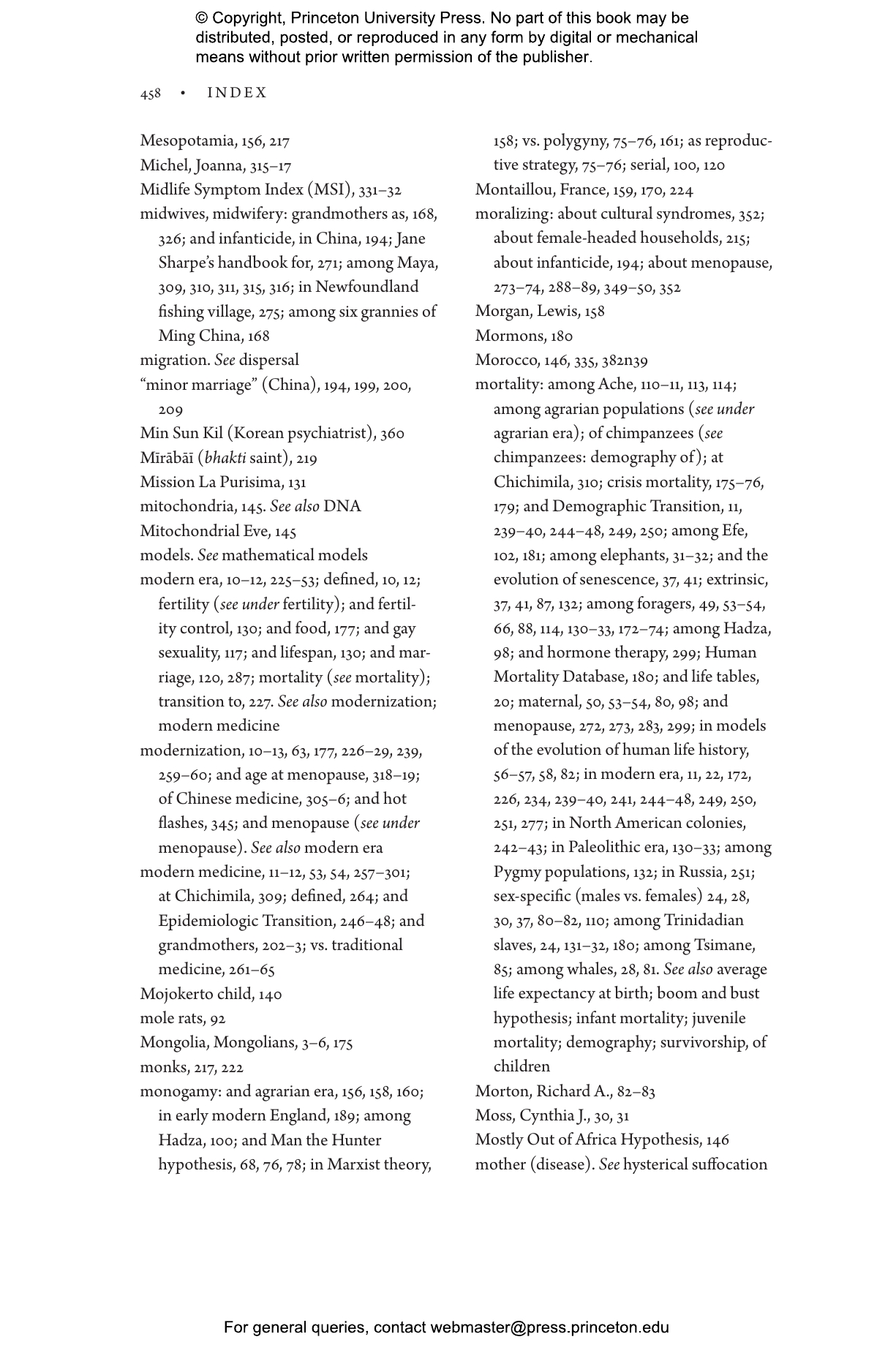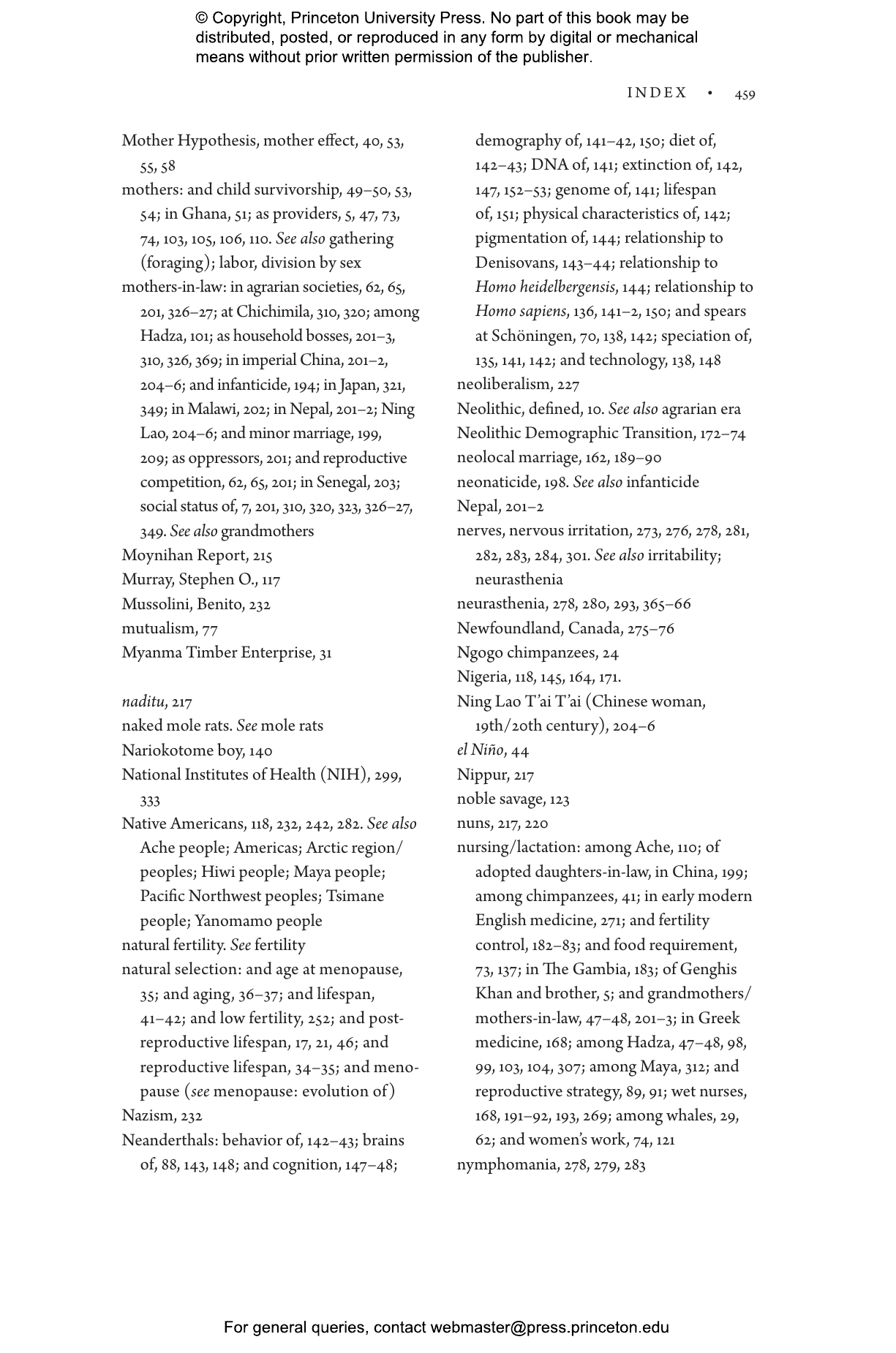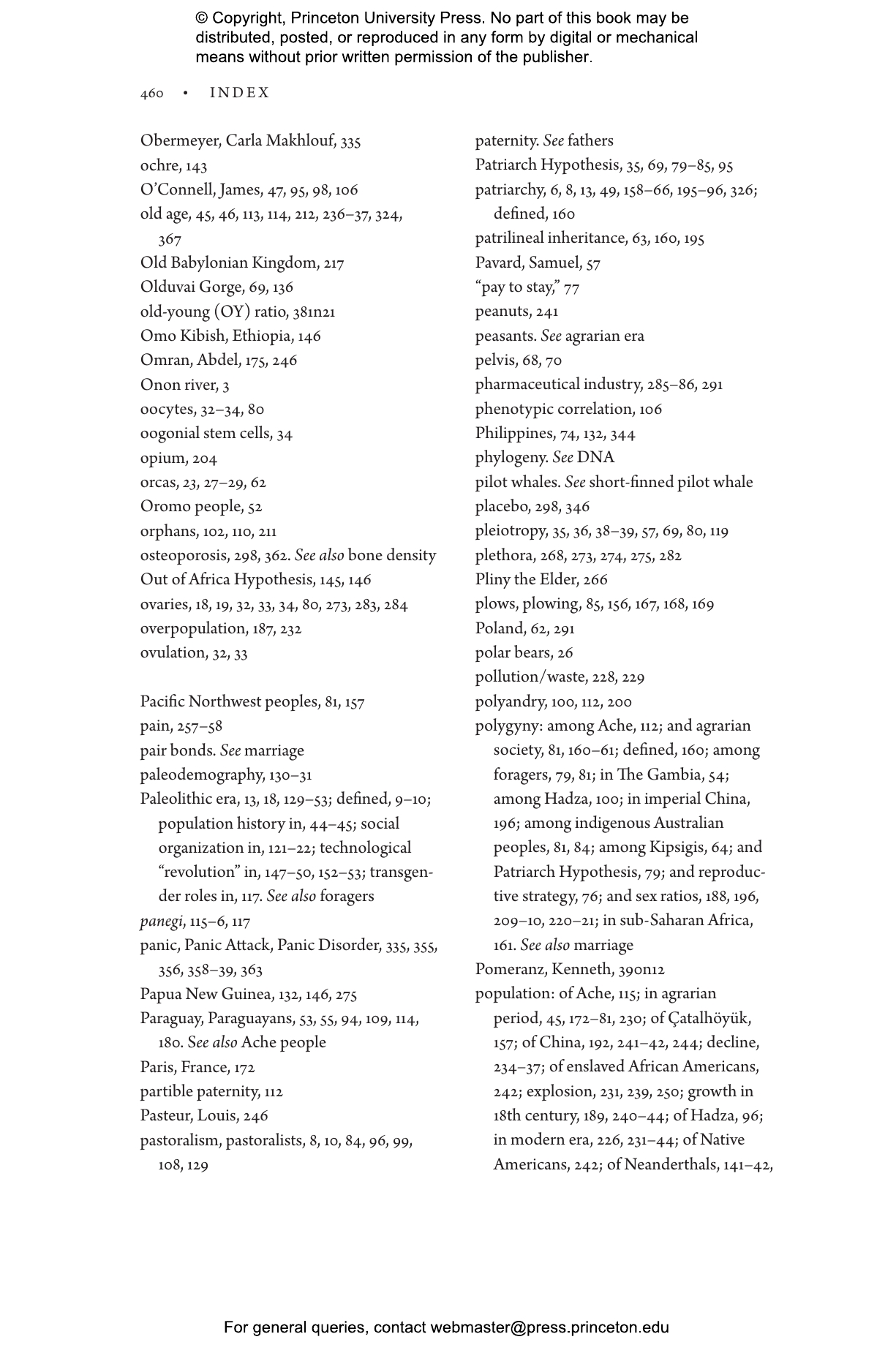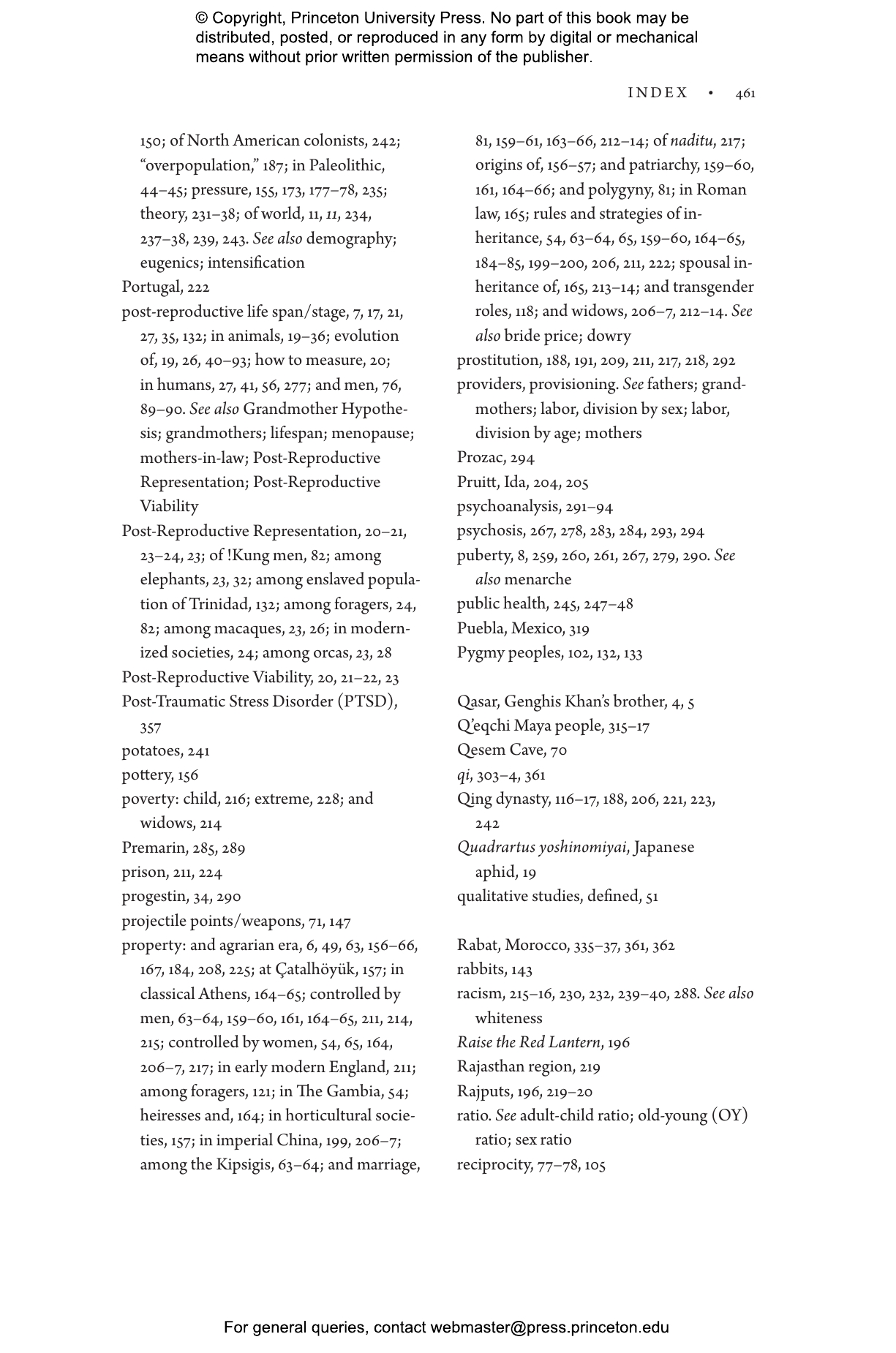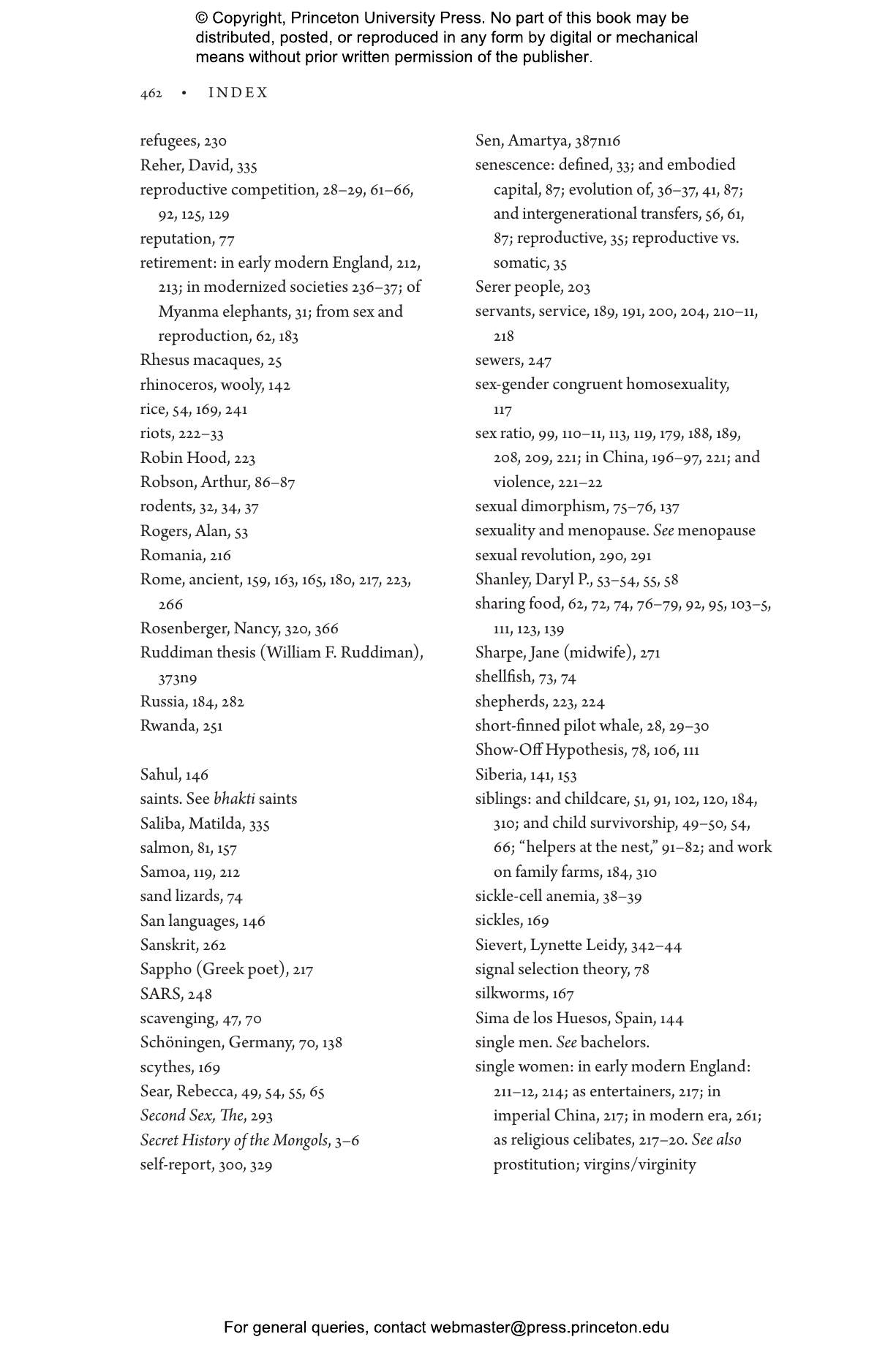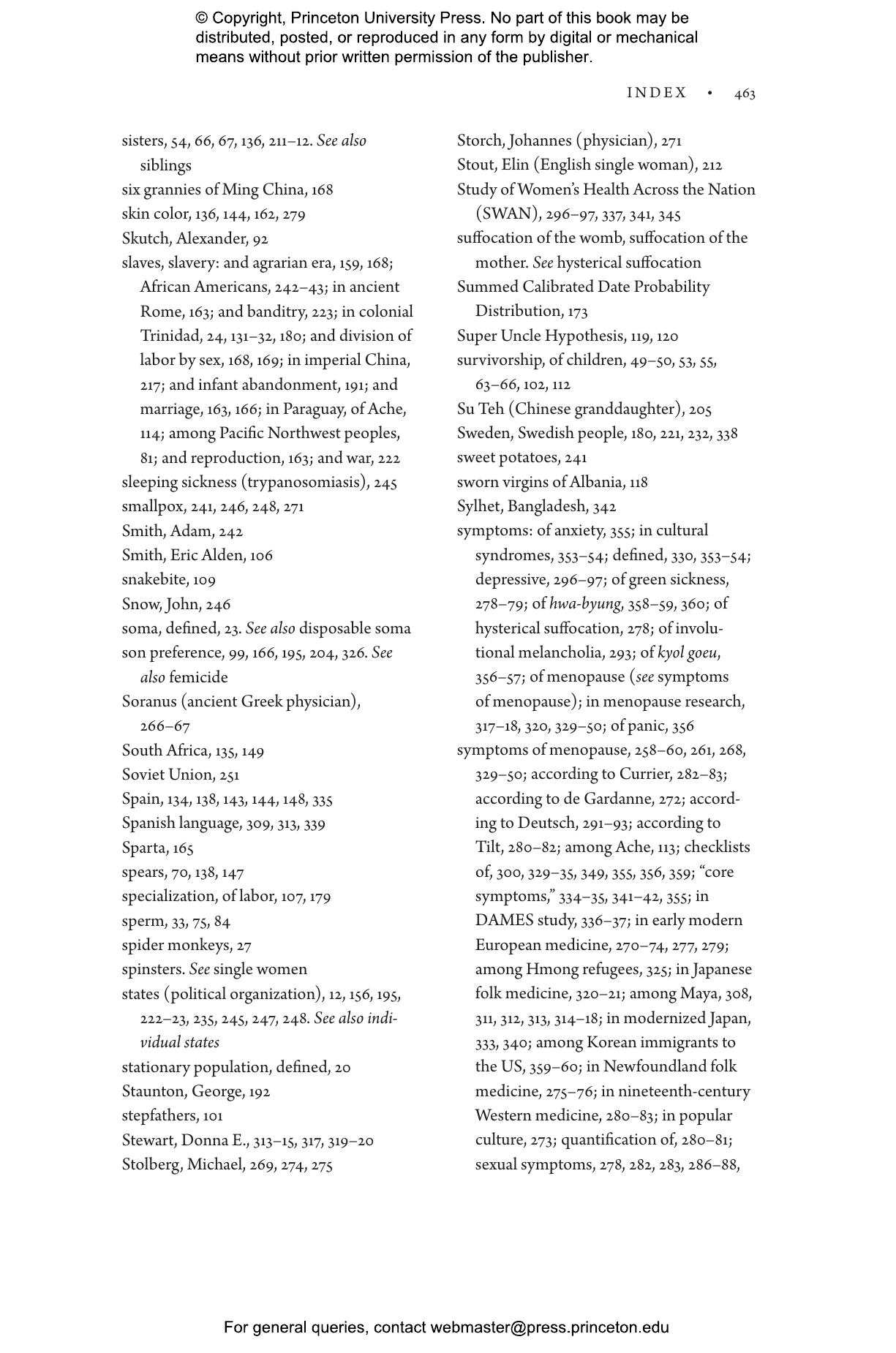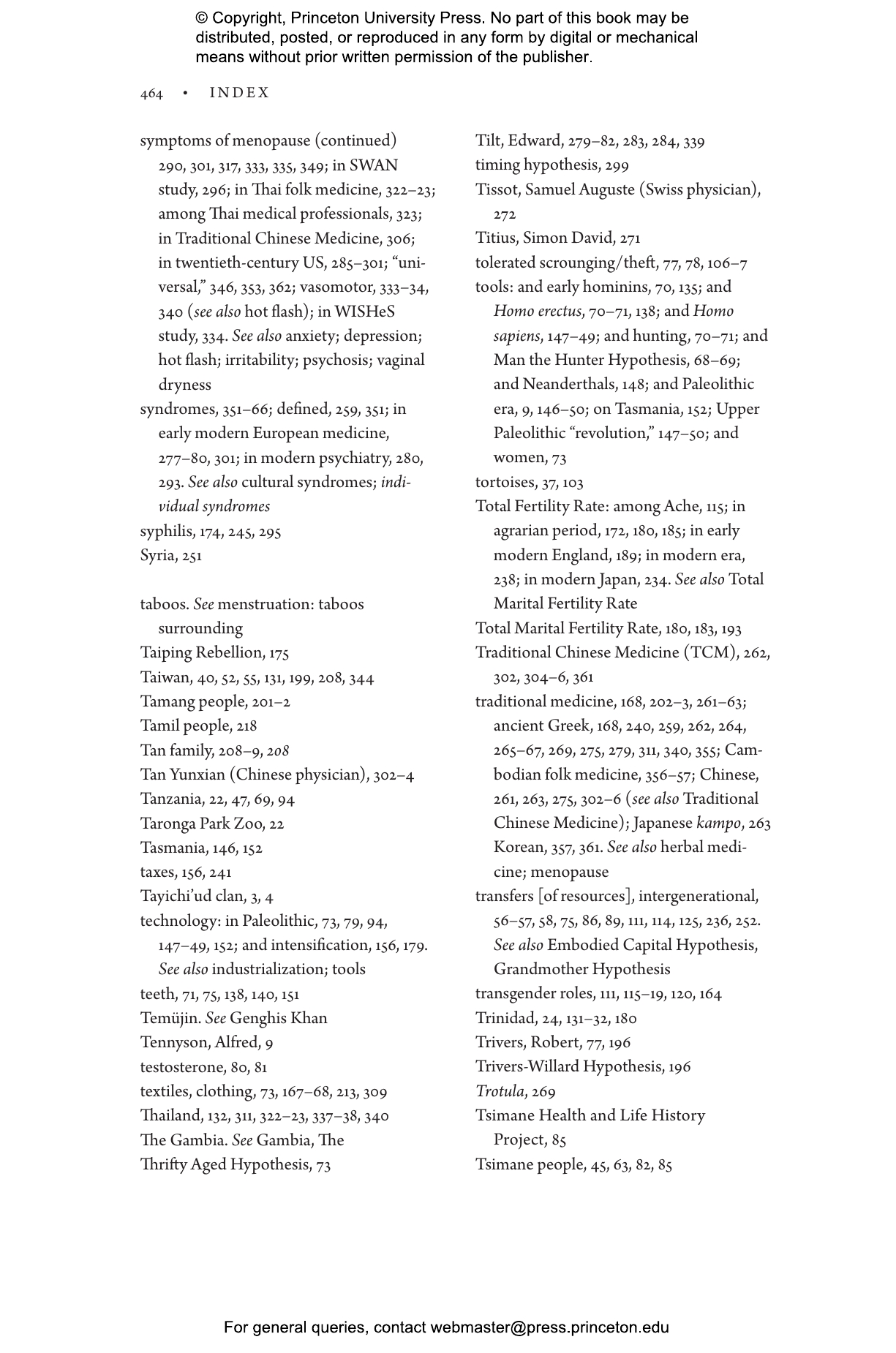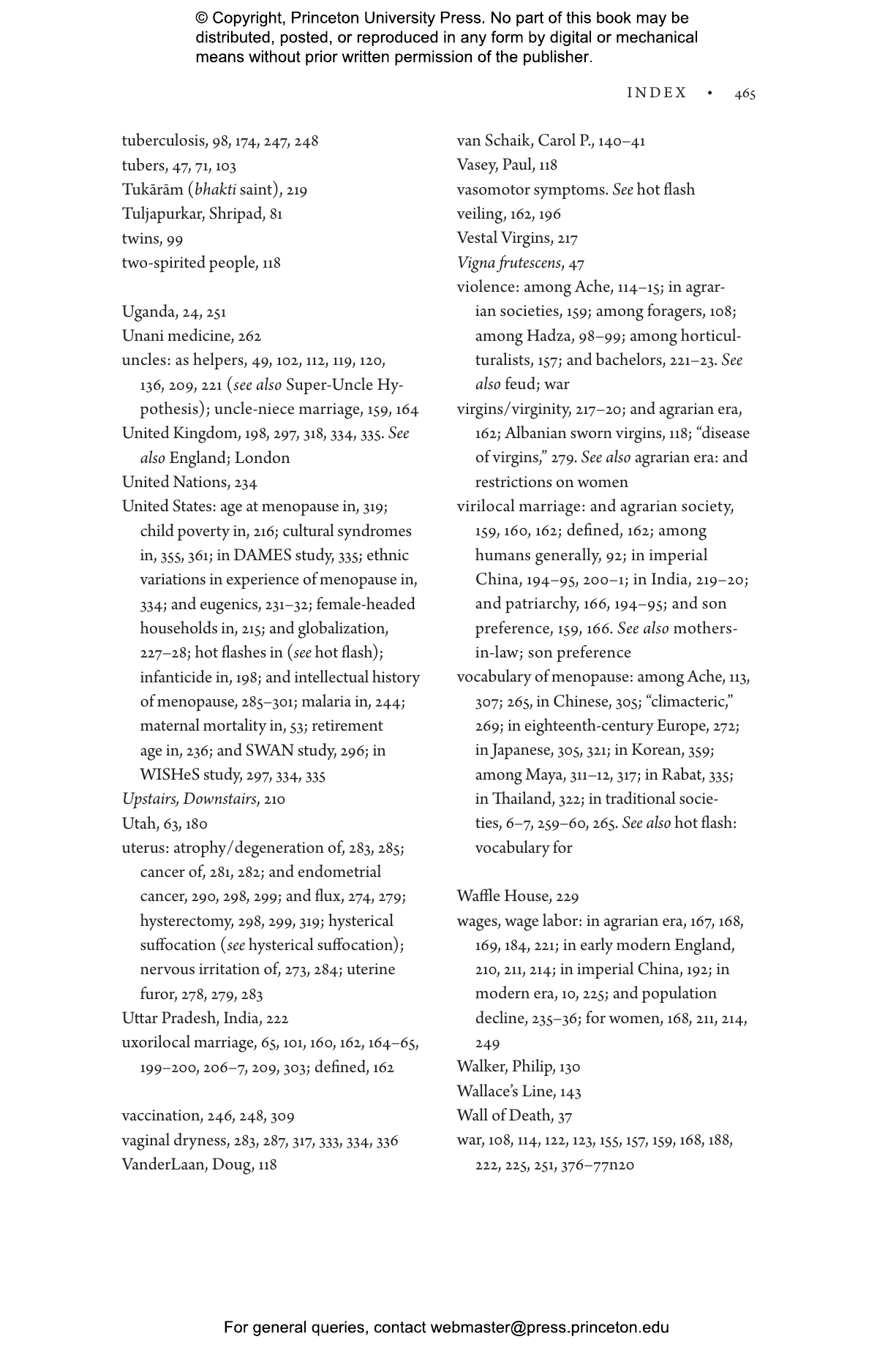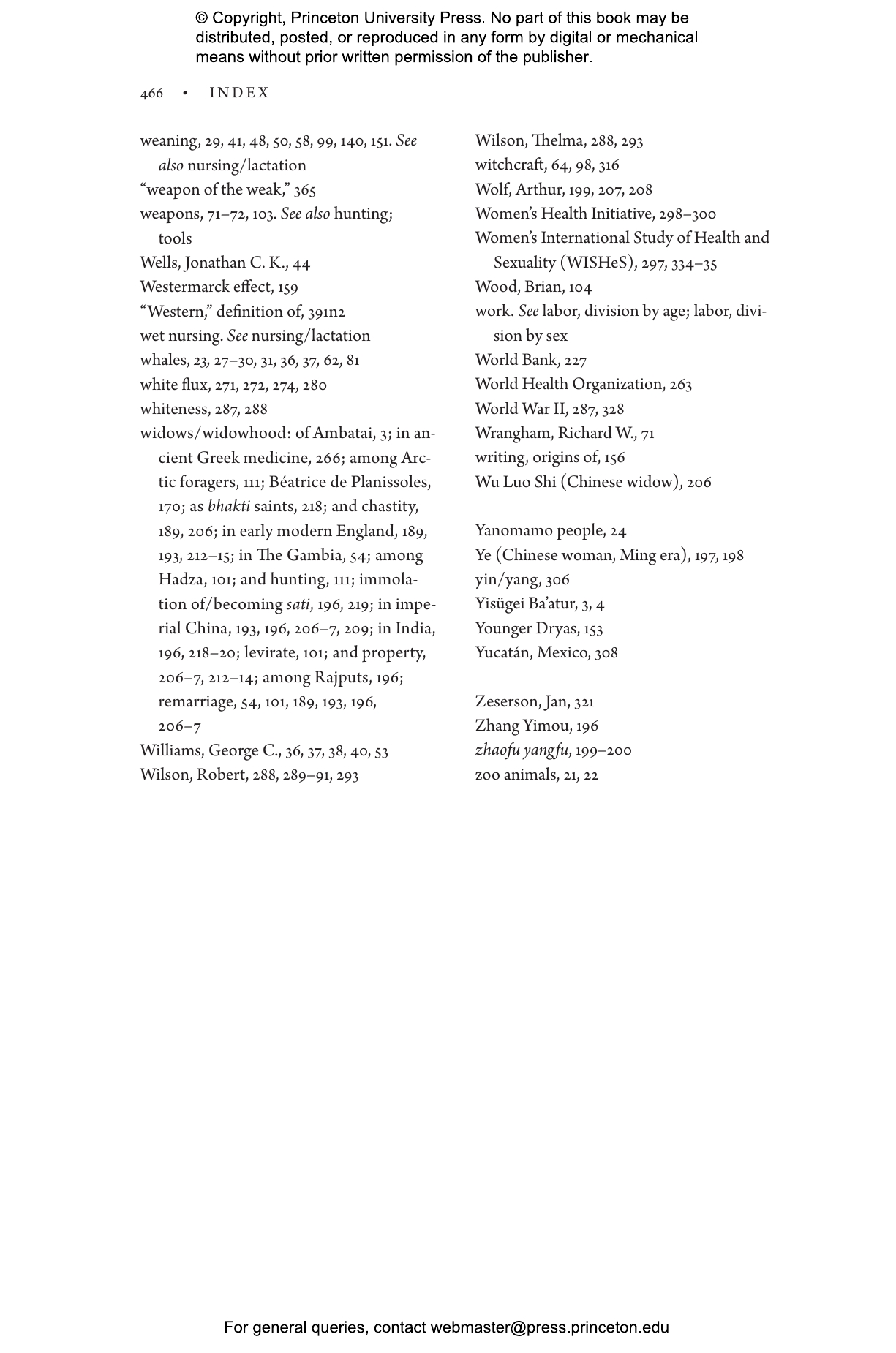Are the ways we look at menopause all wrong? Historian Susan Mattern says yes, and The Slow Moon Climbs reveals just how wrong we have been. Taking readers from the rainforests of Paraguay to the streets of Tokyo, Mattern draws on historical, scientific, and cultural research to reveal how our perceptions of menopause developed from prehistory to today. For most of human history, people had no word for menopause and did not view it as a medical condition. Rather, in traditional foraging and agrarian societies, it was a transition to another important life stage. This book, then, introduces new ways of understanding life beyond fertility.
Mattern examines the fascinating “Grandmother Hypothesis”—which argues for the importance of elders in the rearing of future generations—as well as other evolutionary theories that have generated surprising insights about menopause and the place of older people in society. She looks at agricultural communities where households relied on postreproductive women for the family’s survival. And she explores the emergence of menopause as a medical condition in the Western world. It was only around 1700 that people began to see menopause as a dangerous pathological disorder linked to upsetting symptoms that rendered women weak and vulnerable. Mattern argues that menopause was another syndrome, like hysterical suffocation or melancholia, that emerged or reemerged in early modern Europe in tandem with the rise of a professional medical class.
The Slow Moon Climbs casts menopause, at last, in the positive light it deserves—not only as an essential life stage, but also as a key factor in the history of human flourishing.
Awards and Recognition
- Winner of the PROSE Award in History of Science, Medicine, and Technology, Association of American Publishers
"A celebration of menopause as a life stage vital to our species' survival, but one that has now been trivialized as a disease to be treated. . . . A wise history of a subject that is 'deeply . . . implicated in the human condition.'"—Kirkus Reviews
"That menopause may enable a new role and stature for women is the central argument of The Slow Moon Climbs . . . . Mattern sees [menopause] as an opening-up."—Liza Mundy, The Atlantic
"By historicizing menopause the syndrome and showing how the long lives of post-menopausal women may have been a crucial factor in the success of our species, Mattern offers a counternarrative to the harridans and hags of our cultural consciousness."—Anna Reser, Lady Science
"By viewing [menopause] through the lenses of anthropology, evolutionary psychology, sociology, medicine and culture, Mattern describes how our understanding of this biological rite of passage has itself evolved. [The Slow Moon Climbs] is also a polemic, a plea to reject the medicalisation of menopause and its language of loss and deficiency. All of this makes it a refreshing and scholarly change from the mostly folksy, self-help offerings in this genre."—Anjana Ahuja, Financial Times
"Mattern’s book . . . makes a strong argument for embracing the menopause and treating its symptoms singly rather than bundling it into this female syndrome."—Kate Spicer, The Telegraph
"The Slow Moon Climbs: The Science, History and Meaning of Menopause, surely could not have been published 50 or even 20 years ago."—Anne-Marie Slaughter, Financial Times
"A brilliantly wide-ranging study of the menopause across the centuries . . . Mattern’s remarkable book fits perfectly into this cultural moment."—Emma Rees, Times Higher Education
"The Slow Moon Climbs is a deeply satisfying book. . . . It tells the reader that women reach their most important roles later in life. It insists that what makes women special is not their sexuality, but who they are independent of their sexuality. And it invites them to understand that the social world they chose shapes the bodies they experience. Grandmothers rule."—T. M. Luhrmann, Times Literary Supplement
"The Slow Moon Climbs is much more than a history of how menopause came to be understood as ‘hormonal chaos’. It is a sustained argument about the nature of humanity and the way our societies are structured, a far-reaching account of menopause’s significance in human evolution."—Katherine Foxhall, History Today
"Susan Mattern’s scholarly and interpretive skills make this remarkable book recommended reading for evolutionary and cultural anthropologists as well as other historians, philosophers, and other scientists."—Kristen Hawkes, Evolutionary Studies in Imaginative Culture
"In The Slow Moon Climbs, Mattern dispels old myths about menopause and illuminates the evolutionary, social, and personal advantages of a long-misunderstood natural phase of life: freedom from fertility. This is an important book, filled with vivid examples, scientific realities, and new insights."—Adrienne Mayor, author of The Amazons
"In a masterful survey of breathtaking scope, Mattern reveals that menopause has played an essential role in making us human and building civilization. A truly transformative breakthrough—and a joy to read."—Walter Scheidel, author of The Great Leveler
"The Slow Moon Climbs is a work of great breadth on an essential subject."—Laura Betzig, editor of Human Nature: A Critical Reader
